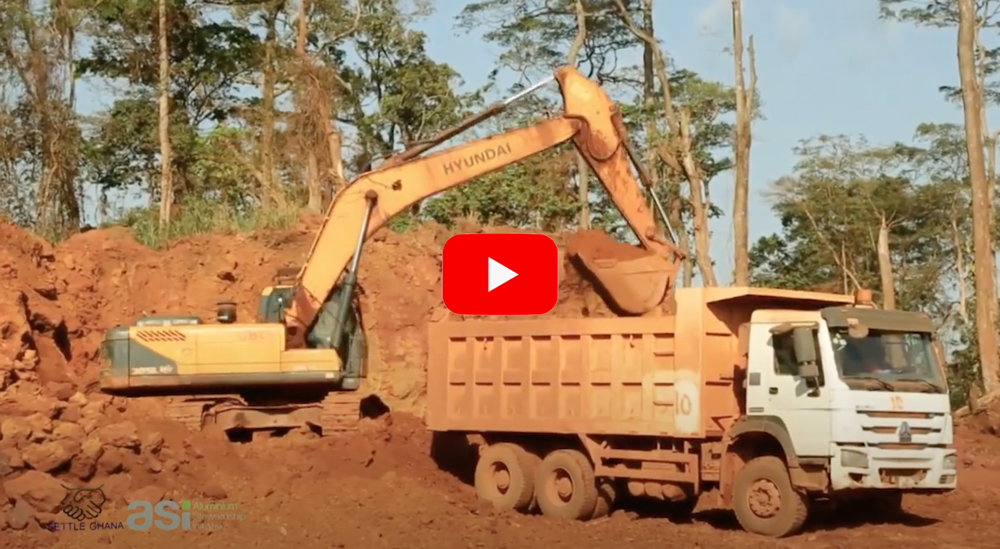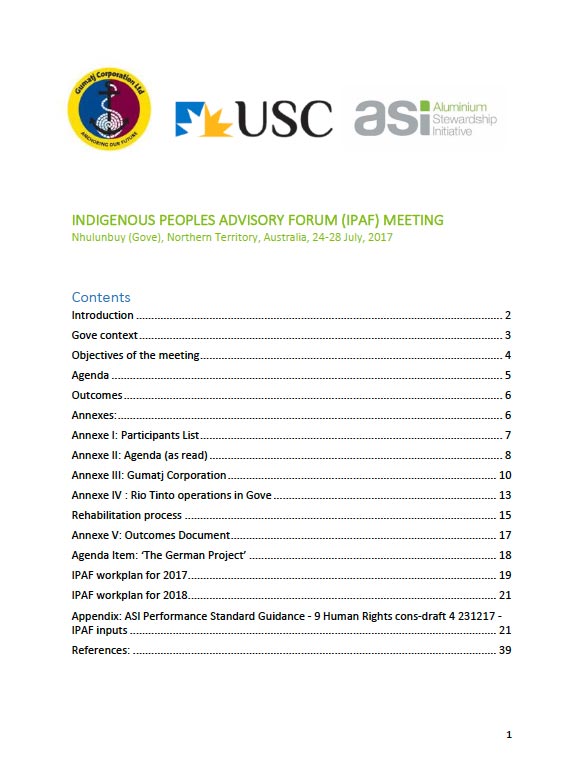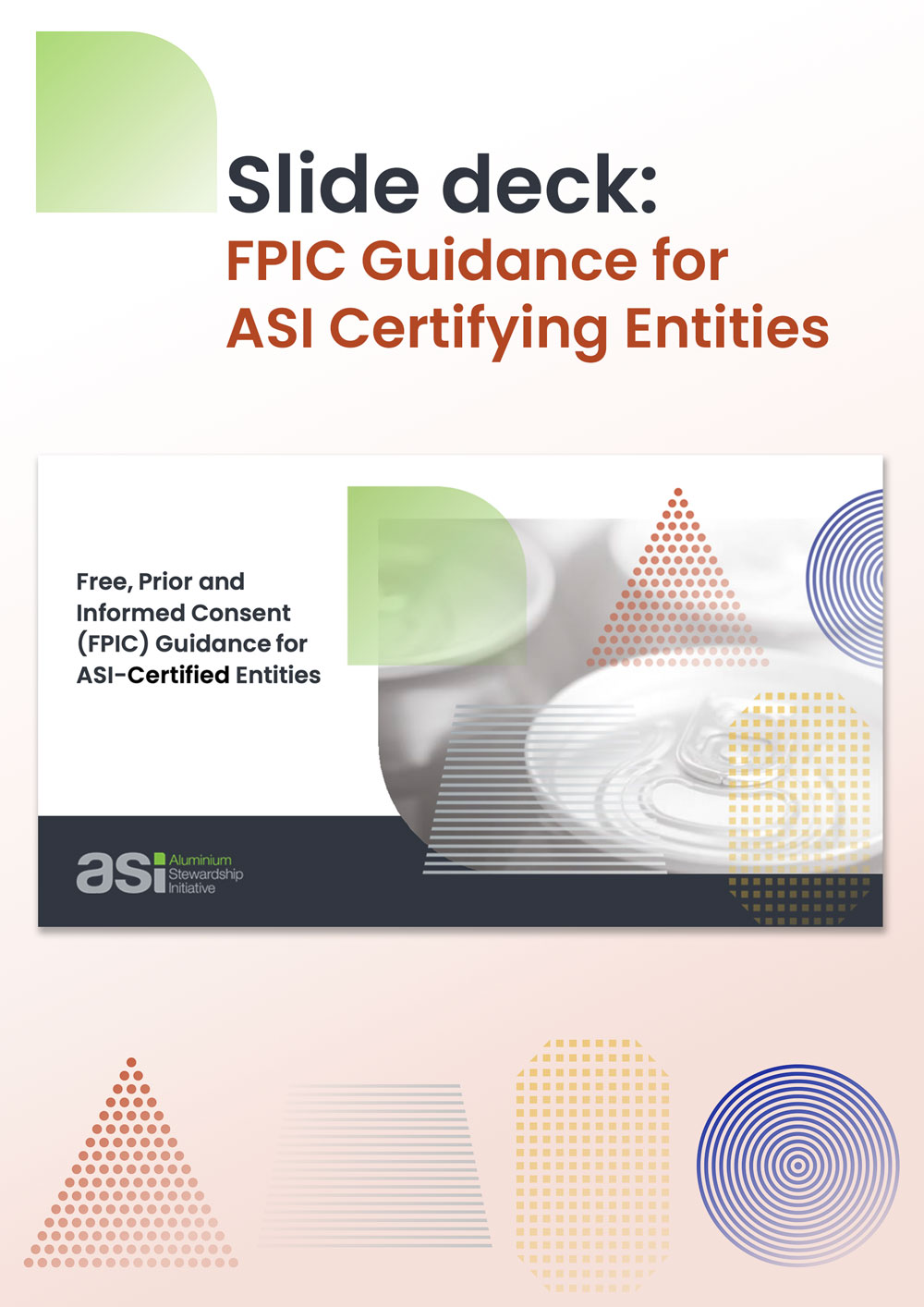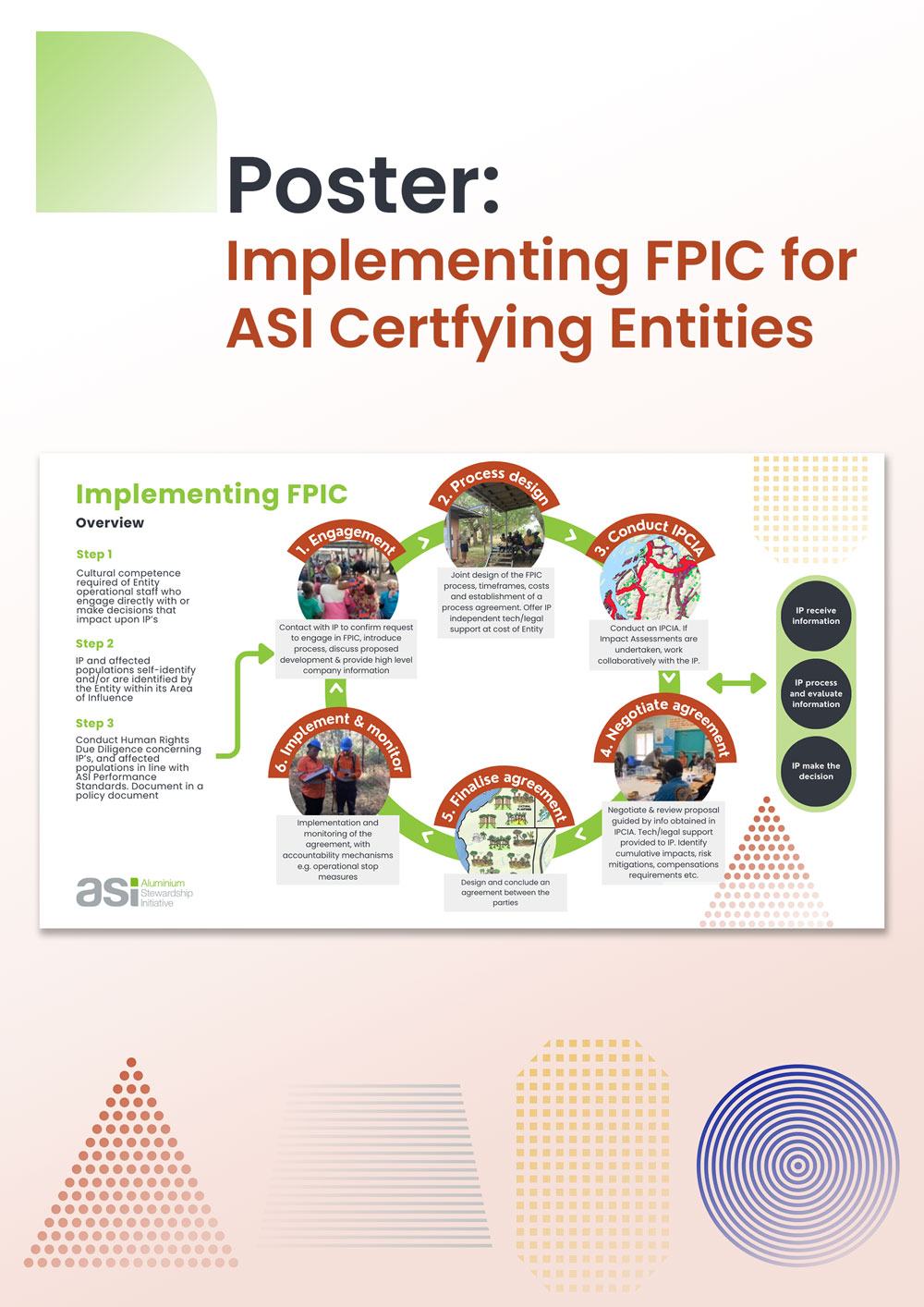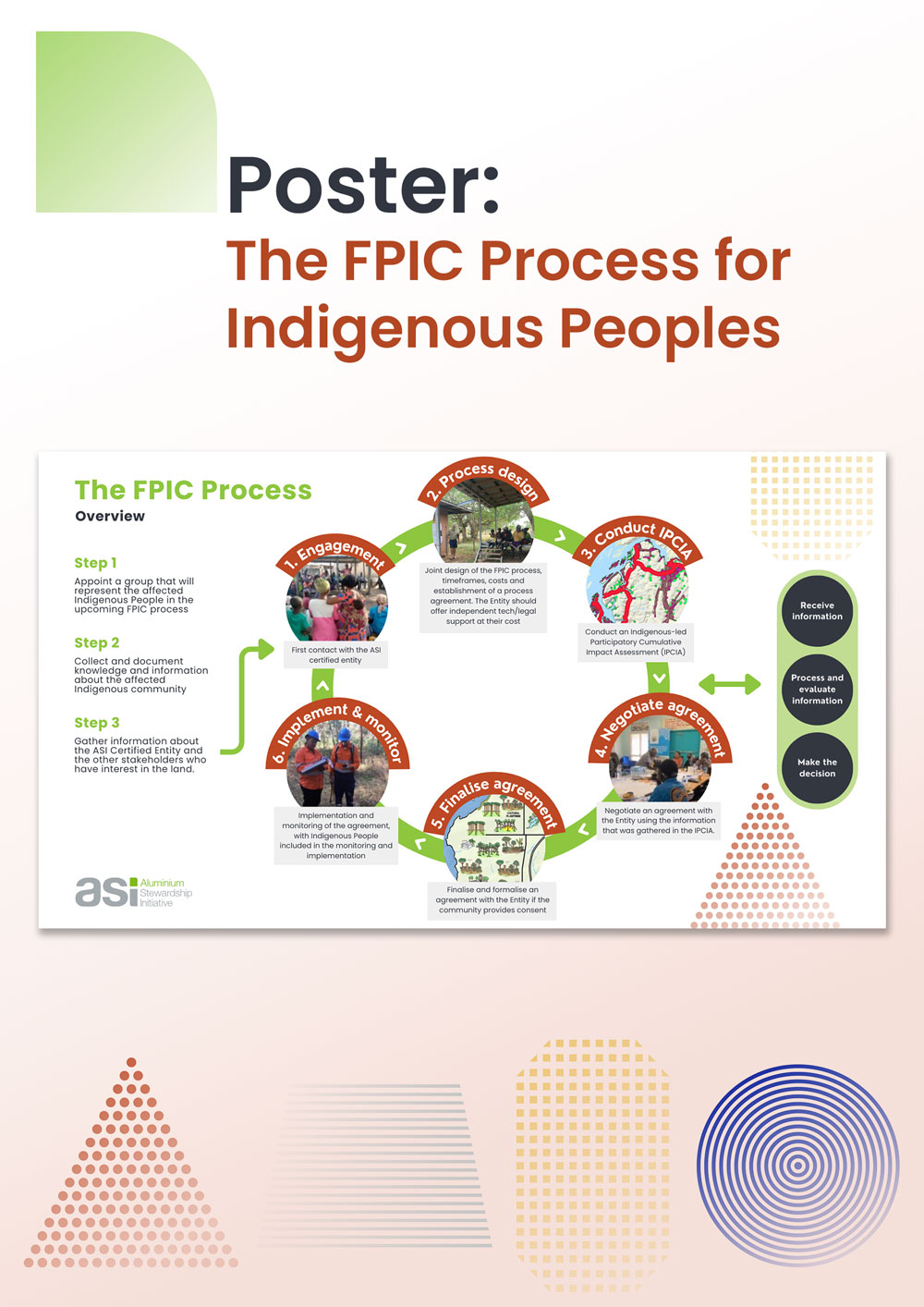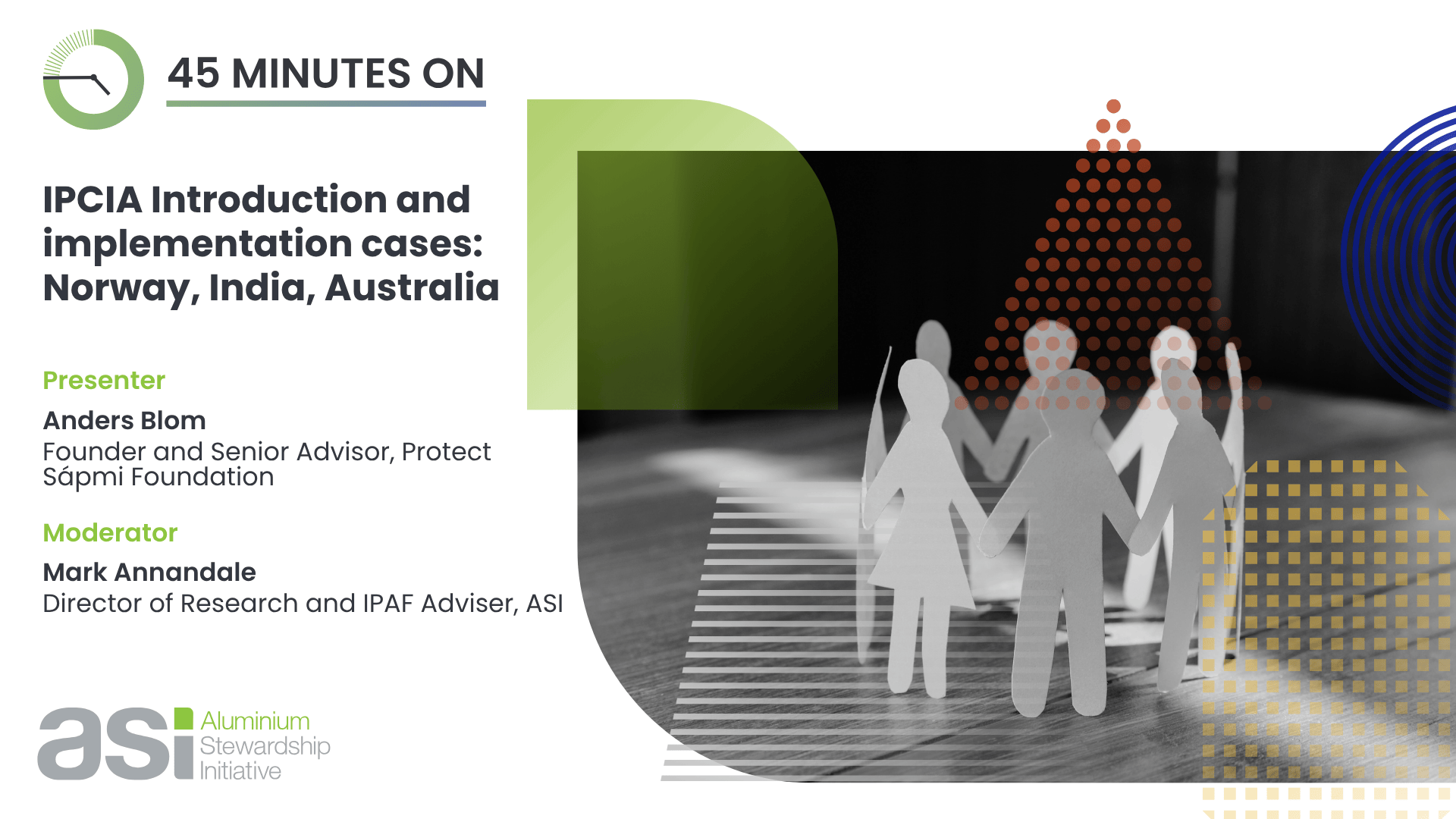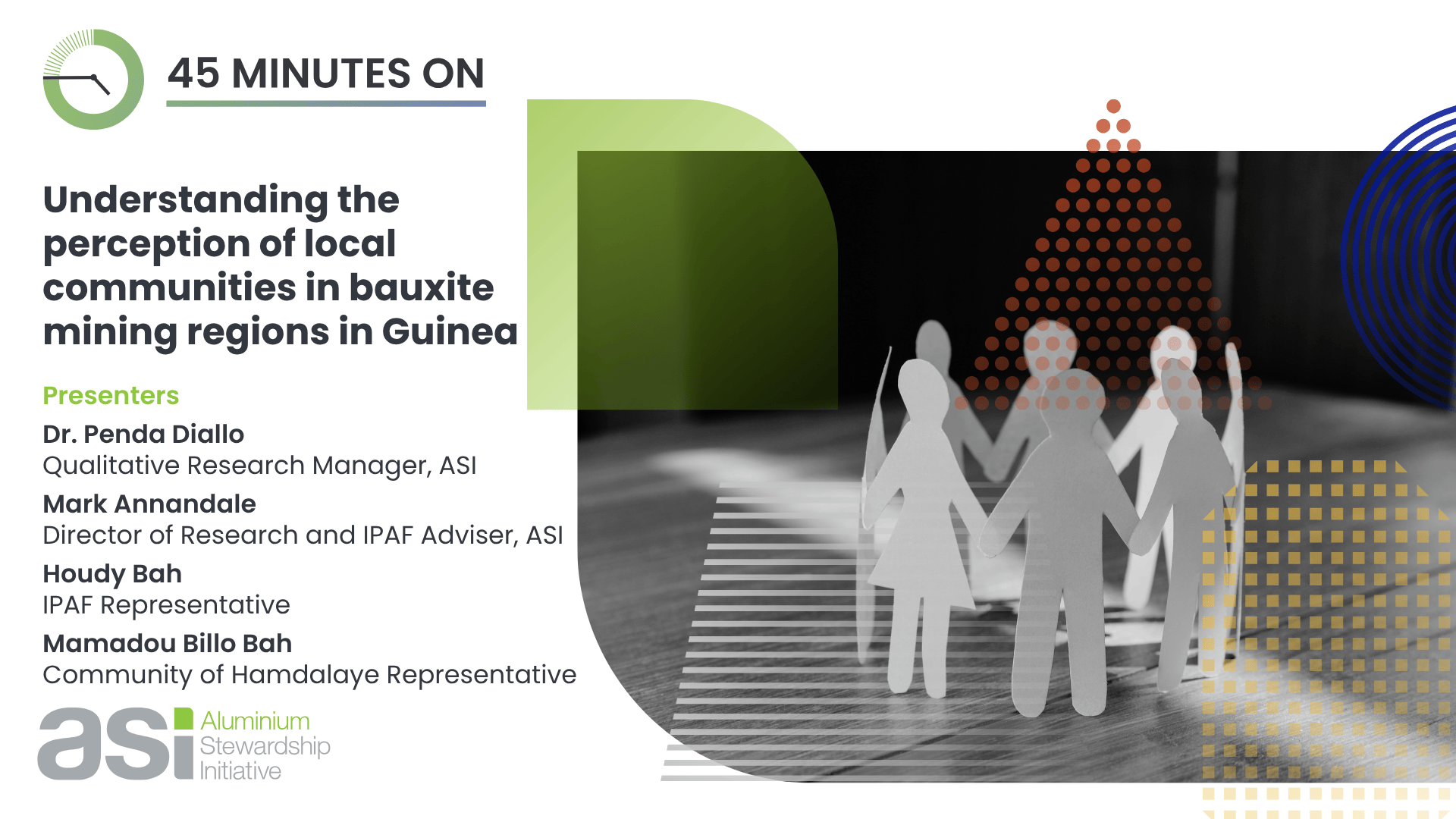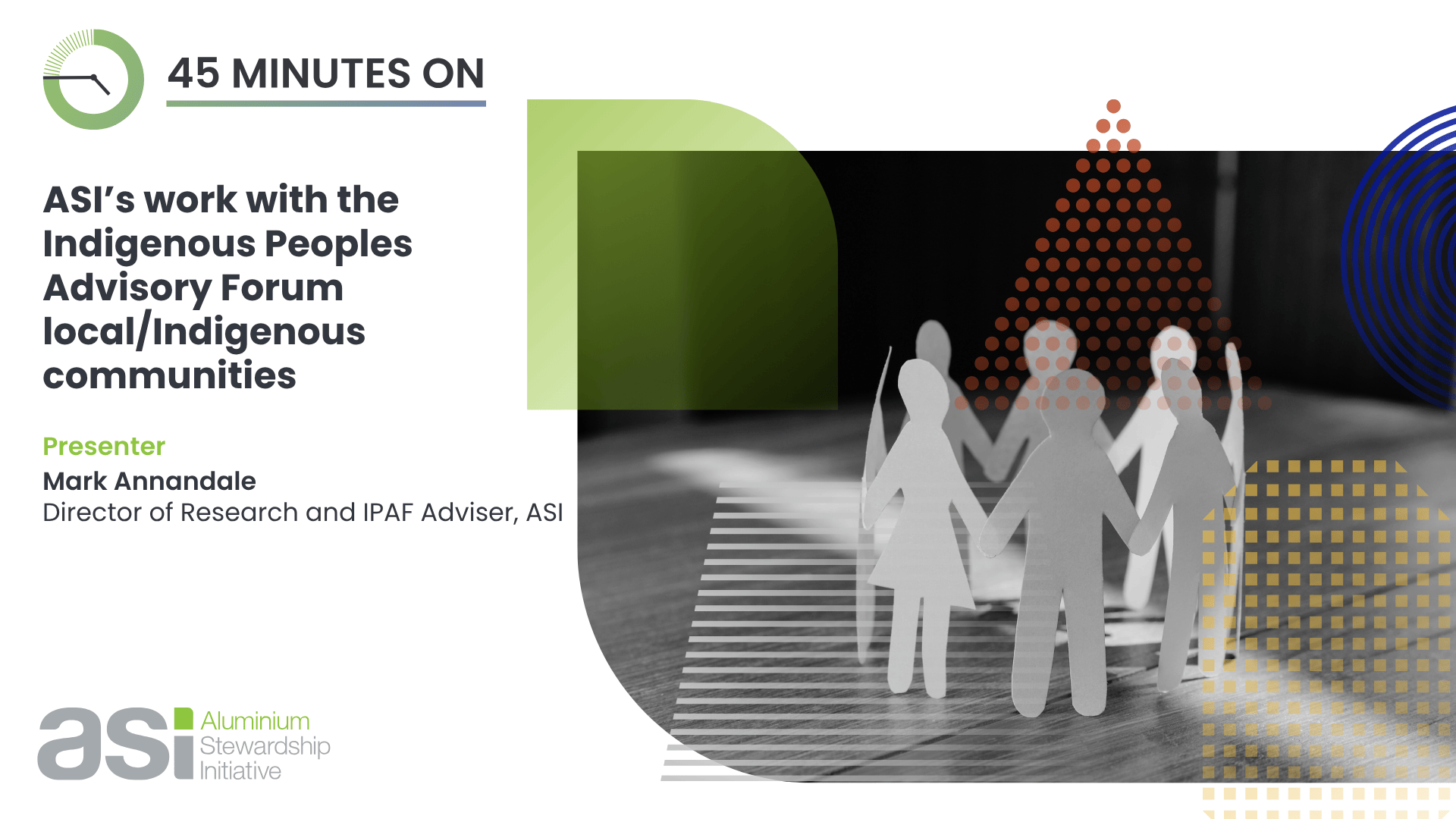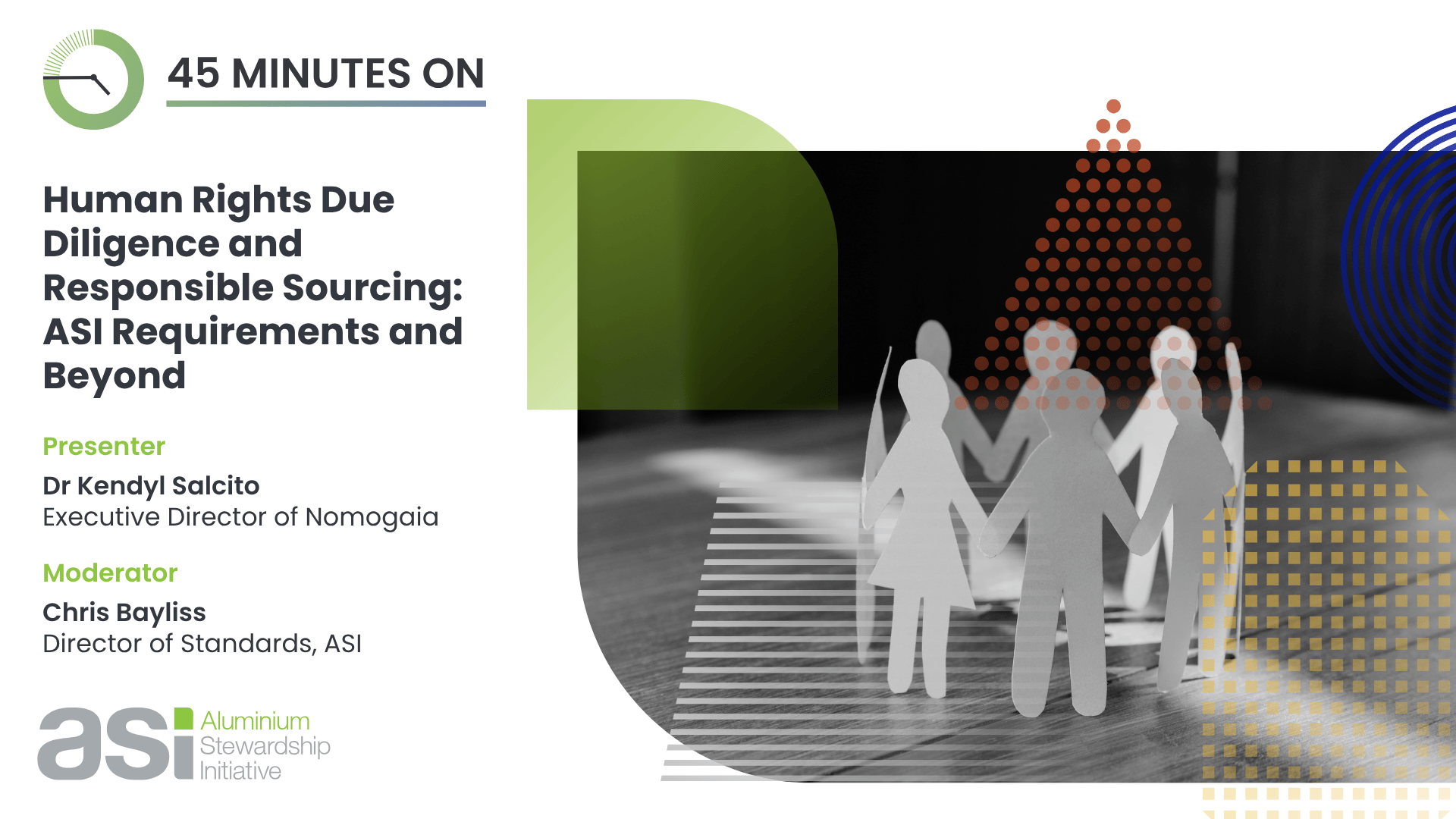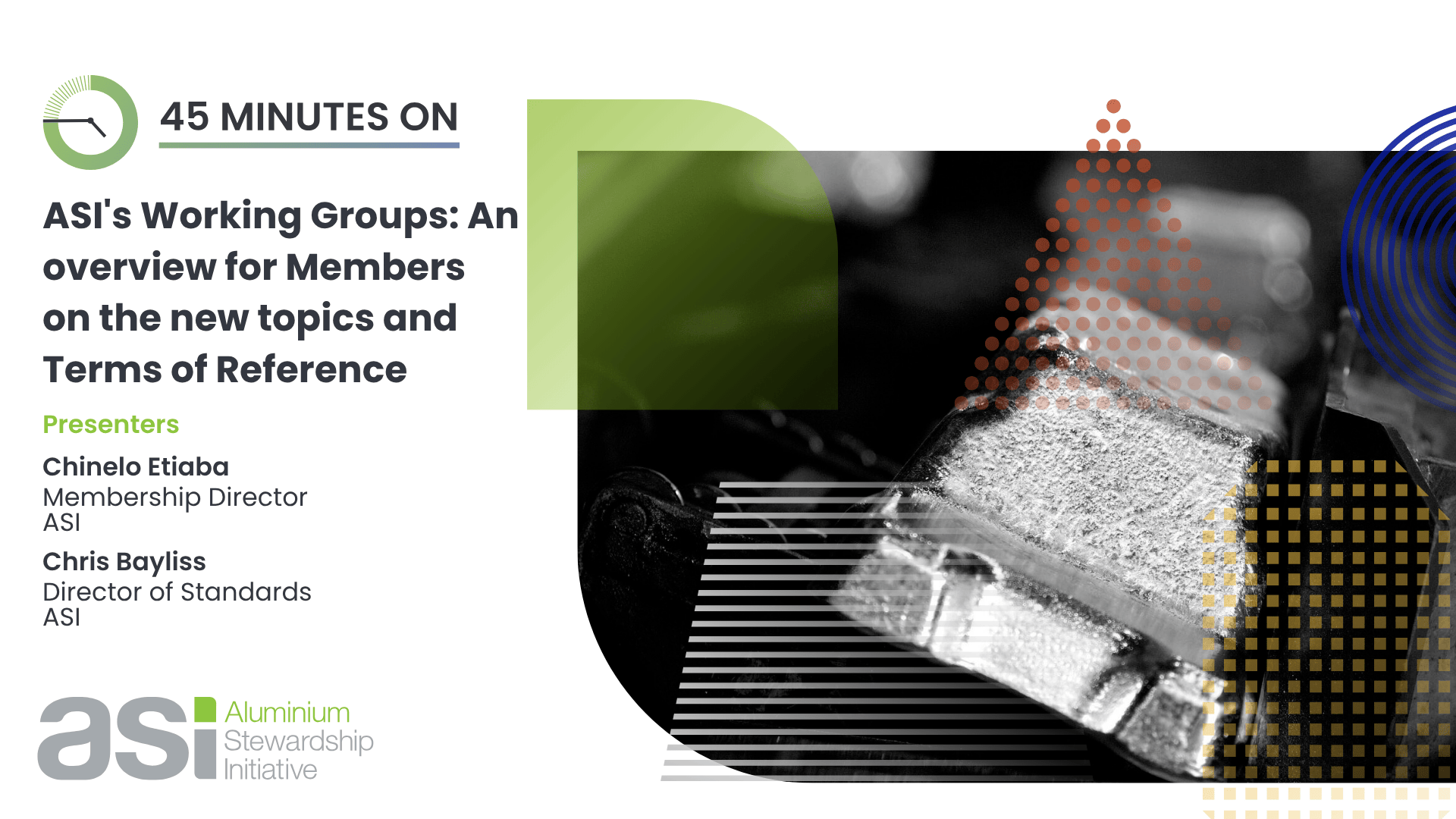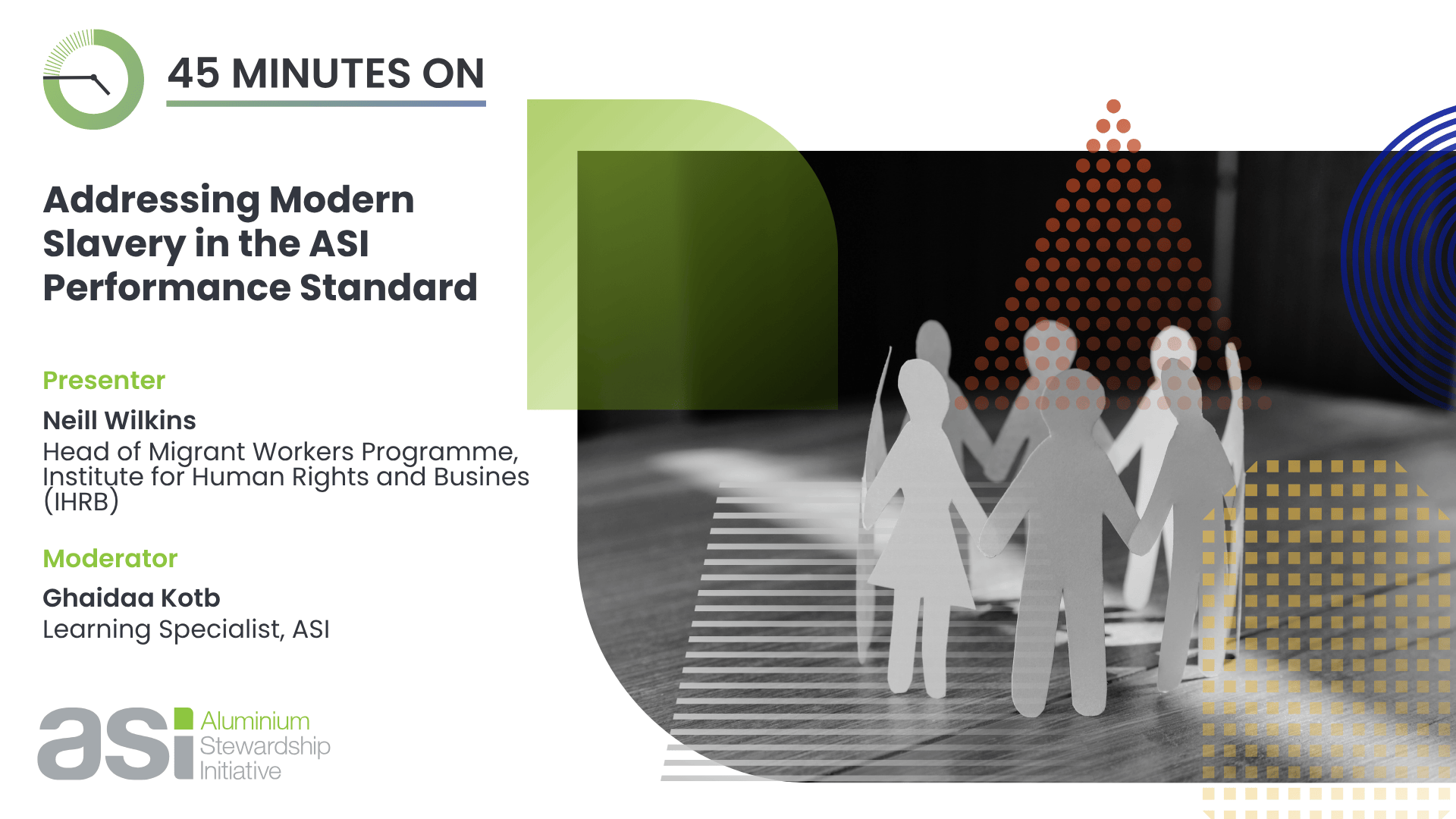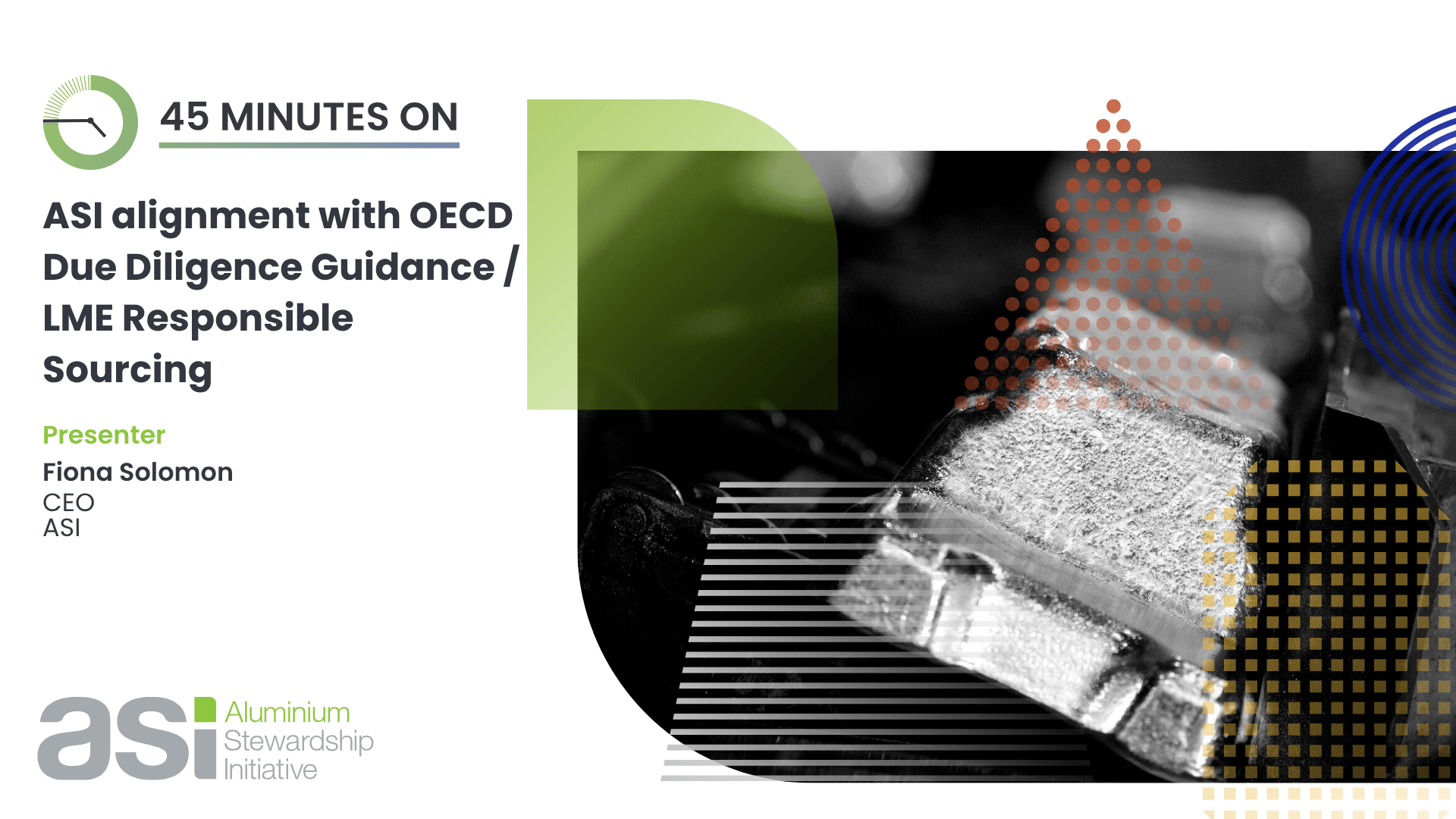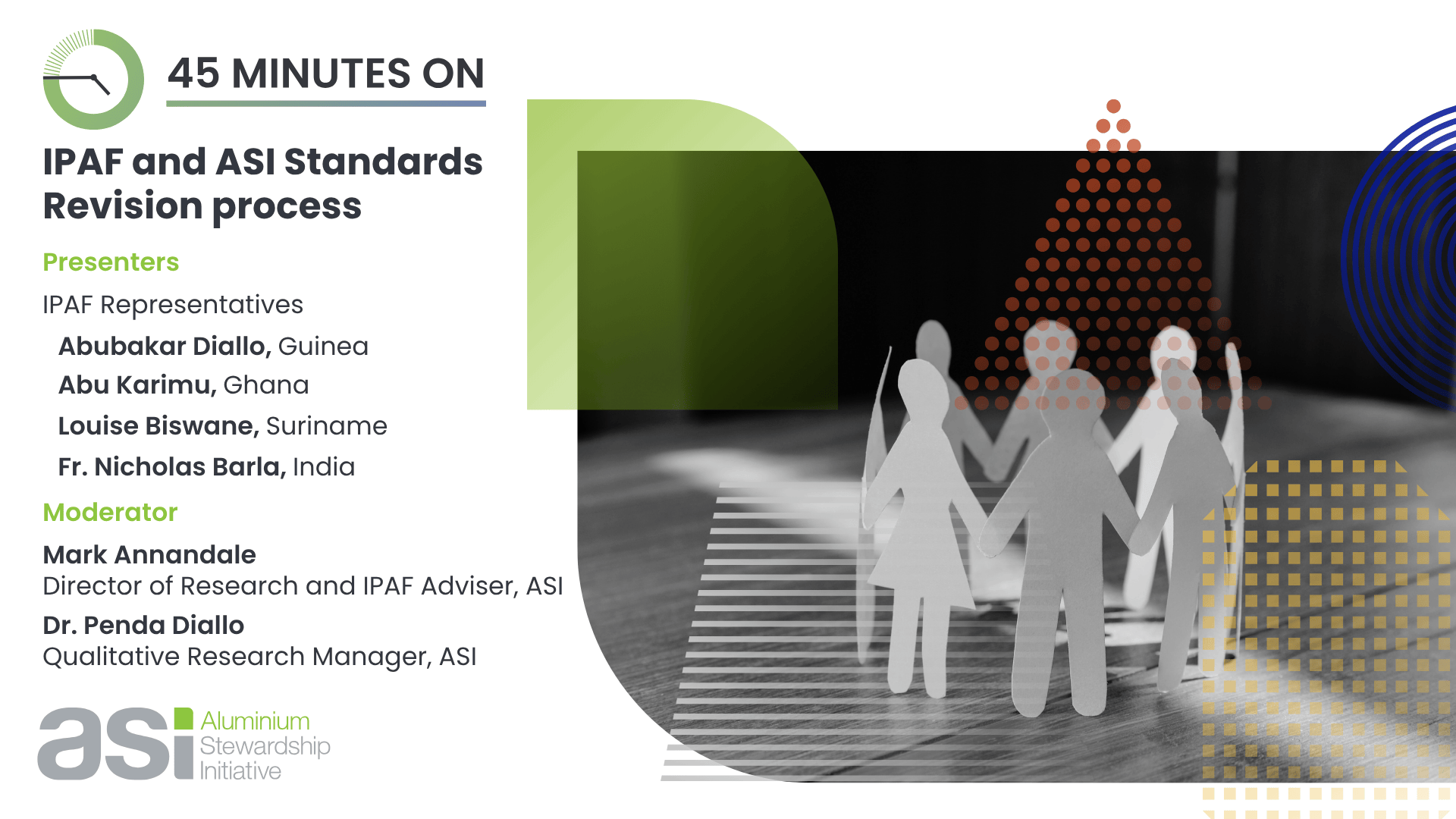Indigenous Peoples Advisory Forum (IPAF)
The Indigenous Peoples Advisory Forum (IPAF) is a communications and engagement platform between representatives of Indigenous Peoples and ASI.
Indigenous Peoples Advisory Forum (IPAF) Essentials
1. What is IPAF?
ASI’s Indigenous Peoples Advisory Forum (IPAF) is a communications and engagement platform between representatives of Indigenous Peoples and ASI.
IPAF supports participation in the Standards Committee and Working Groups, engagement with the ASI Board, engagement with the ASI Complaints Mechanism, and – most importantly – engagement with each other. Outside of their engagement with ASI, IPAF participants are also free to communicate publicly on matters that concern them.
2. What do IPAF members do?
IPAF members participate in – and provide input, advice and recommendations for – key areas of ASI’s work with and for Indigenous Peoples.
IPAF and ASI representatives organise regular teleconferences and video calls to share information on activities and progress. These are an opportunity for community representatives from across the world to connect, share experiences or ideas and establish networks that may provide support for their communities.
Two IPAF members are nominated by IPAF as their representatives on the ASI Standards Committee, to ensure that Indigenous peoples’ rights, concerns, and recommendations are considered.
3. How to get involved
The IPAF Network is open to any Indigenous person, community or organisation, and support groups and individuals, based on interest to be engaged.
IPAF encourages members to share information and experiences with other members, particularly related to extractive industries – such as bauxite mining, alumina refining, aluminium smelting – or other supply chain issues. We welcome women and men of all ages to participate.
Write to us if you would like more information on how to participate.
The latest IPAF-related news
Supporting Indigenous Women’s Participation: ASI’s Commitment to Meaningful Engagement / March 2025
What IPAF participants are saying
Translations / Traduction / Traduções
If you are interested in translations of our documents, let us know. / Si vous êtes intéressé par des traductions de nos documents, faites-le nous savoir. / Se estiver interessado em traduções de nossos documentos, entre em contato conosco.
Featured: Guidance materials on Free, Prior and Informed Consent for ASI Stakeholders
ASI is committed to providing technical and other support to IPAF, ASI Auditors and ASI Members on issues related to Indigenous Peoples rights, particularly on the understanding and implementation of FPIC. To this end, in April 2025, ASI launched a suite of materials for its stakeholders. All the Guidance materials have been developed under the leadership of IPAF and the ASI Secretariat.
About the FPIC Guidance materials
In ASI’s Performance Standard V3.1, the implementation of Free, Prior, and Informed Consent (FPIC) has become a mandatory obligation for the companies and organisations whose ASI-Certified operations may affect Indigenous Peoples, indirectly or directly. The ASI Board of Directors decided in 2023 to initiate the development of FPIC guidance documents for the implementation of FPIC within ASI-Certified operations. The Board’s approach was to tackle the FPIC concept from three different perspectives: ASI Certifying Entities, Indigenous Peoples, and Auditors.
Watch:
Guidance materials BRIEFING
An overview of the FPIC Guidance materials and their use by various stakeholders.
Watch:
Guidance materials PODCAST
A short discussion on FPIC and the Guidance with Anders Blom, Mark Annandale and Jessica Patterson.
Watch:
Dig deeper: What is FPIC?
An explainer video on FPIC. [5 minutes]
Download:
Materials for Indigenous Peoples
- Poster: The FPIC Process for Indigenous Peoples
- Document: FPIC – Free, Prior and Informed Consent: A Guidance Document for Indigenous Peoples Affected by ASI-Certified Entities
- Document (FR) : Le consentement préalable, libre et éclairé (CPLE) : Document d’orientation à l’intention des Peuples Autochtones affectés par les opérations certifiées ASI
Download:
Materials for ASI Entities
Download:
Materials for ASI Auditors
IPAF projects (2022-current)
 ASI launched the Indigenous Peoples Mine Closure and Rehabilitation Project, beginning with a hands-on training programme from 26 January to 14 February 2025 at the Gulkula mine, in the Northern Territory of Australia — home to the world’s only Indigenous-owned bauxite mine. Seven Indigenous participants from Australia, India, Suriname and Ghana, along with three ASI Secretariat staff, took part in the “train-the-trainer” initiative.
ASI launched the Indigenous Peoples Mine Closure and Rehabilitation Project, beginning with a hands-on training programme from 26 January to 14 February 2025 at the Gulkula mine, in the Northern Territory of Australia — home to the world’s only Indigenous-owned bauxite mine. Seven Indigenous participants from Australia, India, Suriname and Ghana, along with three ASI Secretariat staff, took part in the “train-the-trainer” initiative.
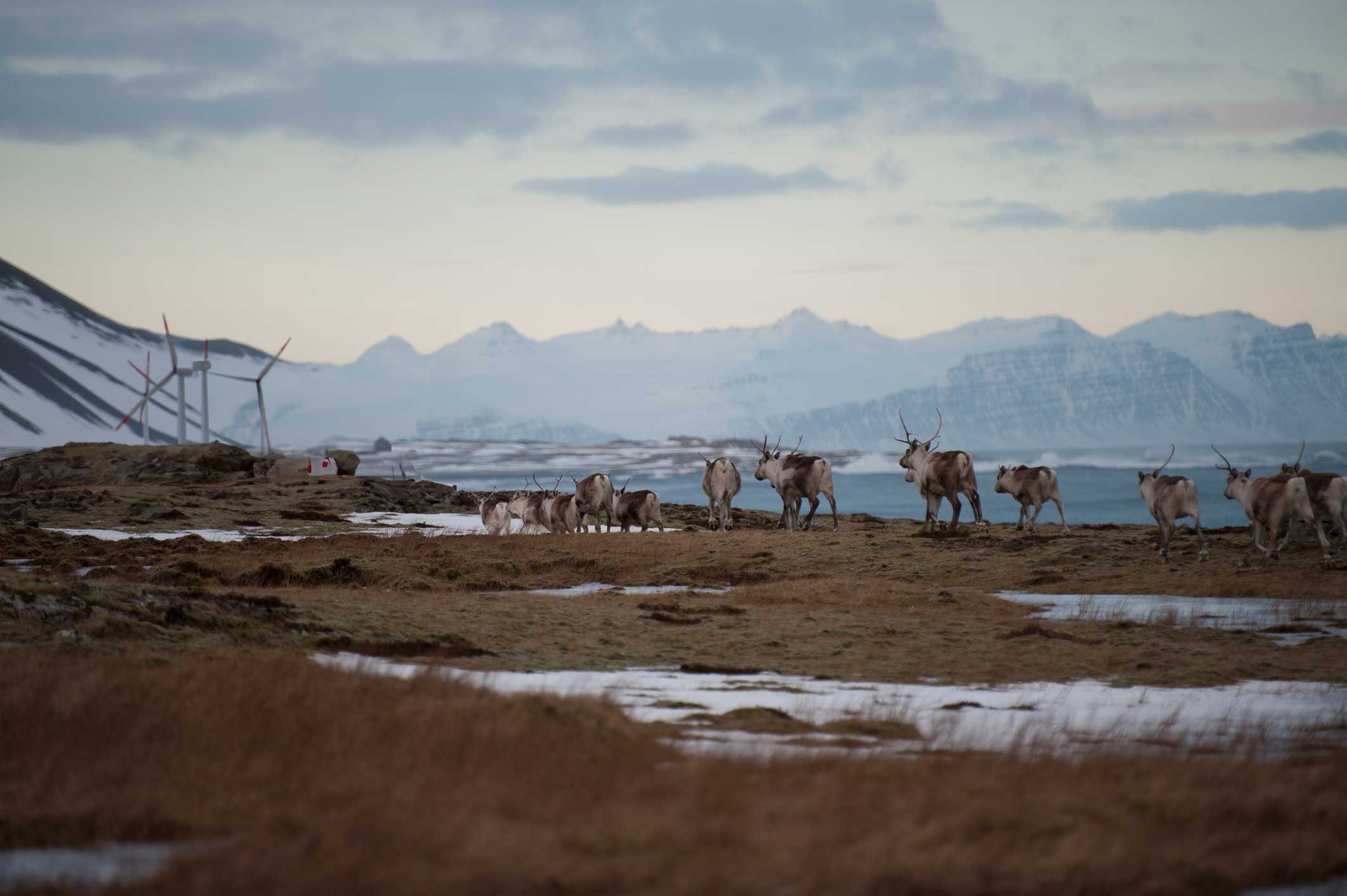
Members of ASI’s Indigenous Peoples Advisory Forum (IPAF) have noted that conventional impact assessments often overlook the value of Indigenous knowledge and experience.
The Indigenous-led Participatory Cumulative Impact Assessment (IPCIA) offers an alternative approach, placing Indigenous knowledge and livelihoods at the centre of environmental and social evaluations. Developed by the Protect Sápmi Foundation based on over twelve years of experience with Indigenous communities in Sápmi, the methodology assesses cumulative impacts of development on traditional ecosystem services.
With ASI’s support, the IPCIA method was updated and translated into English in 2023, and is now available on the ASI website.
In addition, ASI and IPAF support has enabled testing of the IPCIA methodology in India in 2022/23 and Australia (short video) in 2024-25, including the active participation of an expert technical adviser and mentor for the projects.
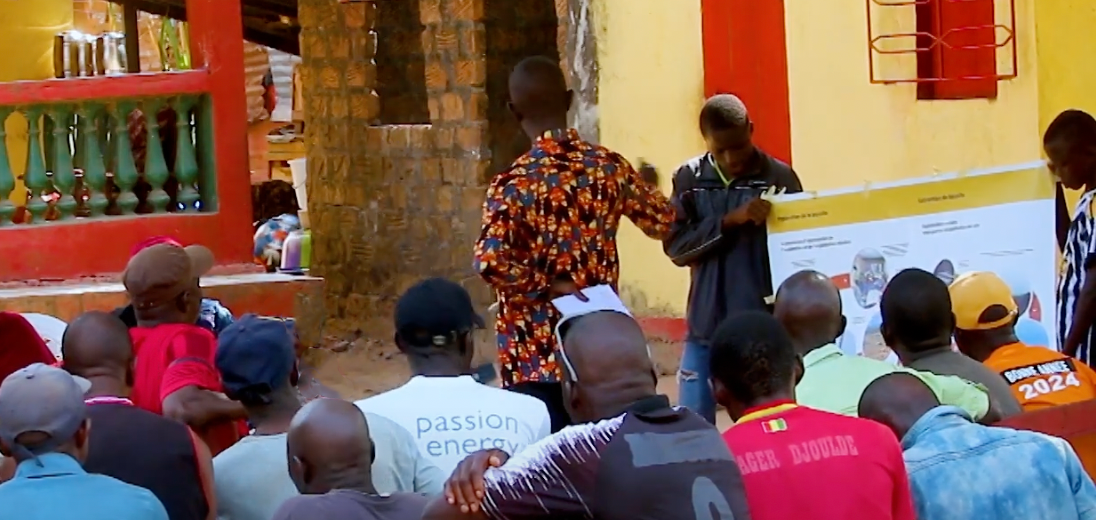 Part of ASI’s Guinea Project, ASI and IPAF led local language workshops on bauxite mining cycle and rehabilitation, reaching over 5,000 attendees in 121 communities across Boké and Kindia regions. The workshops aimed to provide participants with a better understanding of bauxite mine development to enable more effective participation of local communities in mining discussions and activities and Free Prior Informed Consent (FPIC) processes.
Part of ASI’s Guinea Project, ASI and IPAF led local language workshops on bauxite mining cycle and rehabilitation, reaching over 5,000 attendees in 121 communities across Boké and Kindia regions. The workshops aimed to provide participants with a better understanding of bauxite mine development to enable more effective participation of local communities in mining discussions and activities and Free Prior Informed Consent (FPIC) processes.
During the workshops, communities raised concerns regarding the lack of compensation and proper rehabilitation efforts, and the lack of employment, local business, and other benefits from mining activities. The need for improved communication, community engagement, and addressing community concerns was highlighted.
After the conclusion of the series of workshops, the project team met in March 2024 in Kamsar to reflect on lessons learned and determine the next steps. The main recommendations included implementing tangible projects to improve communities’ livelihoods and well-being, enhance peaceful dispute resolution, and offer practical mine site rehabilitation experience. The communities have appreciated the workshops provided by IPAF.
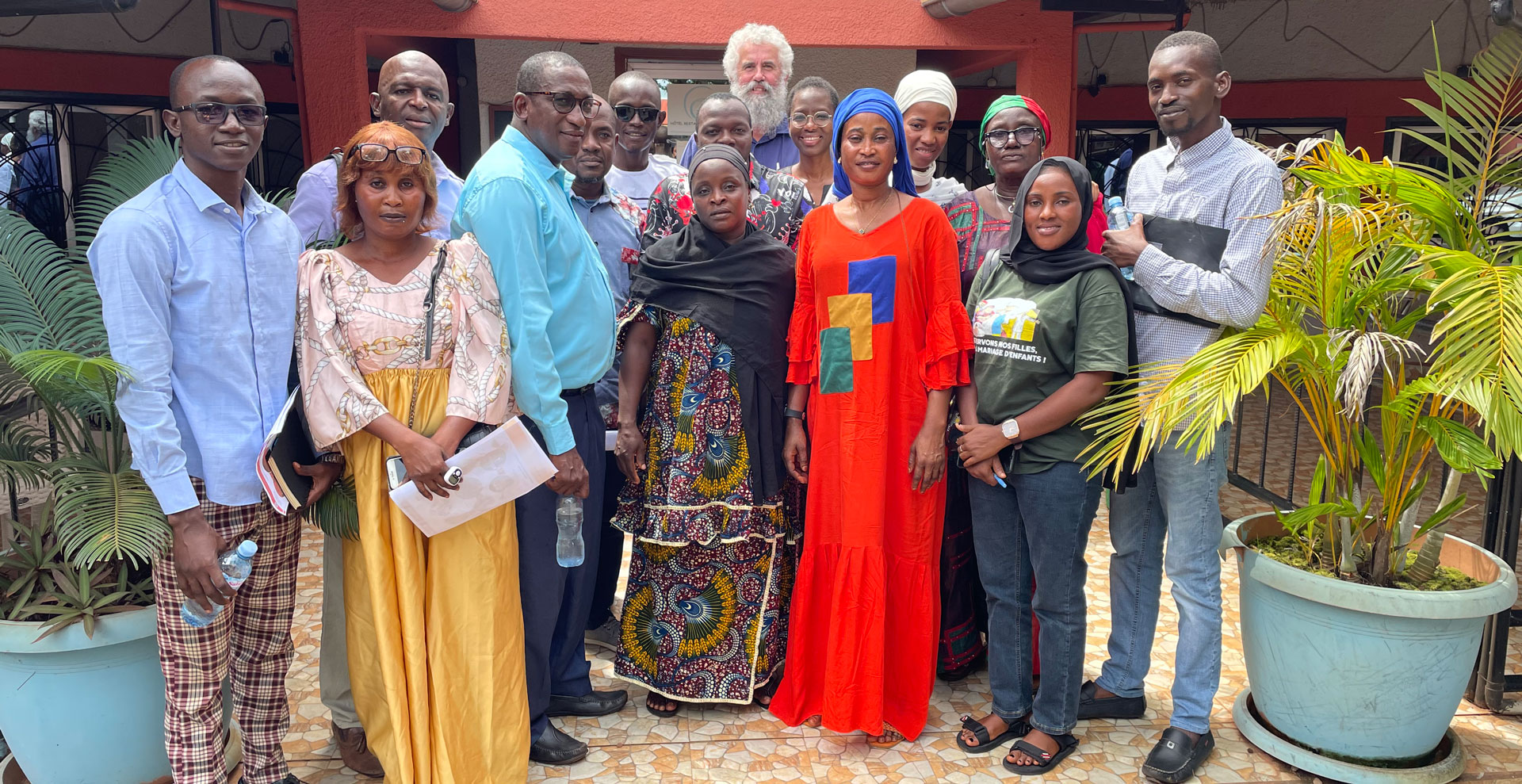
ASI’s Guinea Project, an initiative to increase mining education in local communities impacted by bauxite mining, has made meaningful progress through workshops and training held in September and October, facilitated by ASI Secretariat members Dr Penda Diallo and Mark Annandale.
During interactive “train-the-trainer” workshops, 14 IPAF members in Guinea were trained in presentation skills and provided with tools to effectively deliver workshops and respond to questions. The training incorporated both practice presentations and feedback, allowing participants the opportunity to develop their knowledge in a practical setting. The IPAF members first tested delivering the workshop to the training group before it was facilitated in three communities in the Boke region and one in the Kindia region of Guinea.
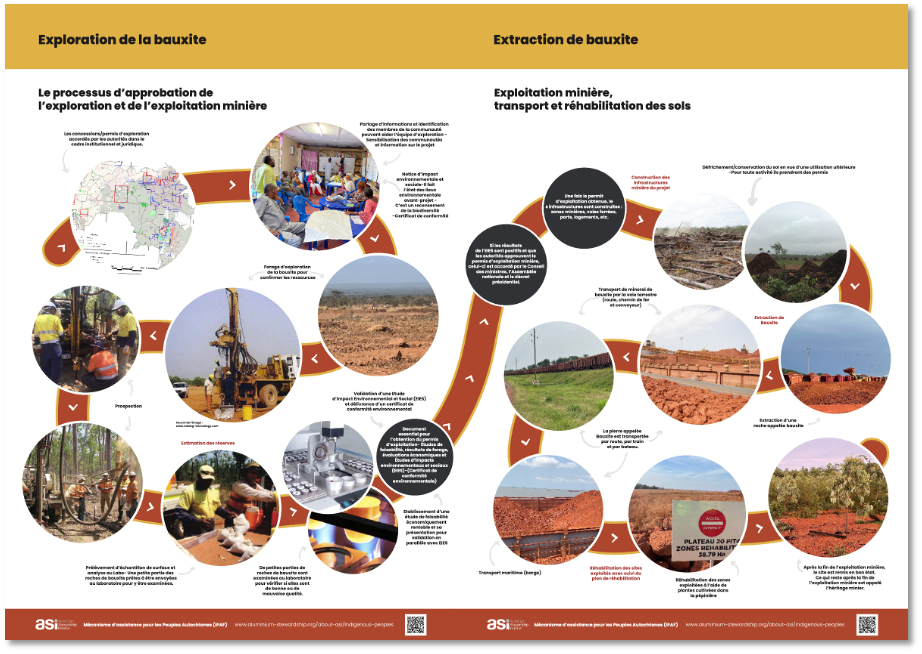 ASI undertook exploratory and explanatory research to support a better understanding and perception of Free, Prior, and Informed Consent, primarily with local communities. Some interviews with additional stakeholders, including government officials in Guinea supplemented the research findings. Field research activities were conducted by ASI in Conakry and the Boké and Kindia regions from April 19 to June 5, 2022. Focus group discussions engaged 376 participants, comprising selected individuals and 19 groups.
ASI undertook exploratory and explanatory research to support a better understanding and perception of Free, Prior, and Informed Consent, primarily with local communities. Some interviews with additional stakeholders, including government officials in Guinea supplemented the research findings. Field research activities were conducted by ASI in Conakry and the Boké and Kindia regions from April 19 to June 5, 2022. Focus group discussions engaged 376 participants, comprising selected individuals and 19 groups.
The research findings, compiled into a booklet and available in English and French, serve as a roadmap for sustainable community engagement. ASI’s commitment to disseminating the research findings began with local communities in May 2023, undertaken with trained local community representatives.
The Stage 2 of the Walking together Initiative operated by Settle Ghana specifically continued to build on a targeted, nation-wide program that worked with a diverse group of Indigenous Ghanaians all across Ghana.
For a relatively small organisation, Settle Ghana was able to use existing network and experiences with indigenous communities to engage first with Community Chiefs Elders and Religious Leaders and later with communities.
The micro-projects implemented in Stage 2 have created economic opportunities in remote locations while also creating social value. The program has delivered several additional out of-scope items, such as school furniture, education books, solar-powered streetlights, marketing short-information videos, and IT computer equipment. The final results of the program have been impressive, engaging over 4400 people across six regions in Ghana.
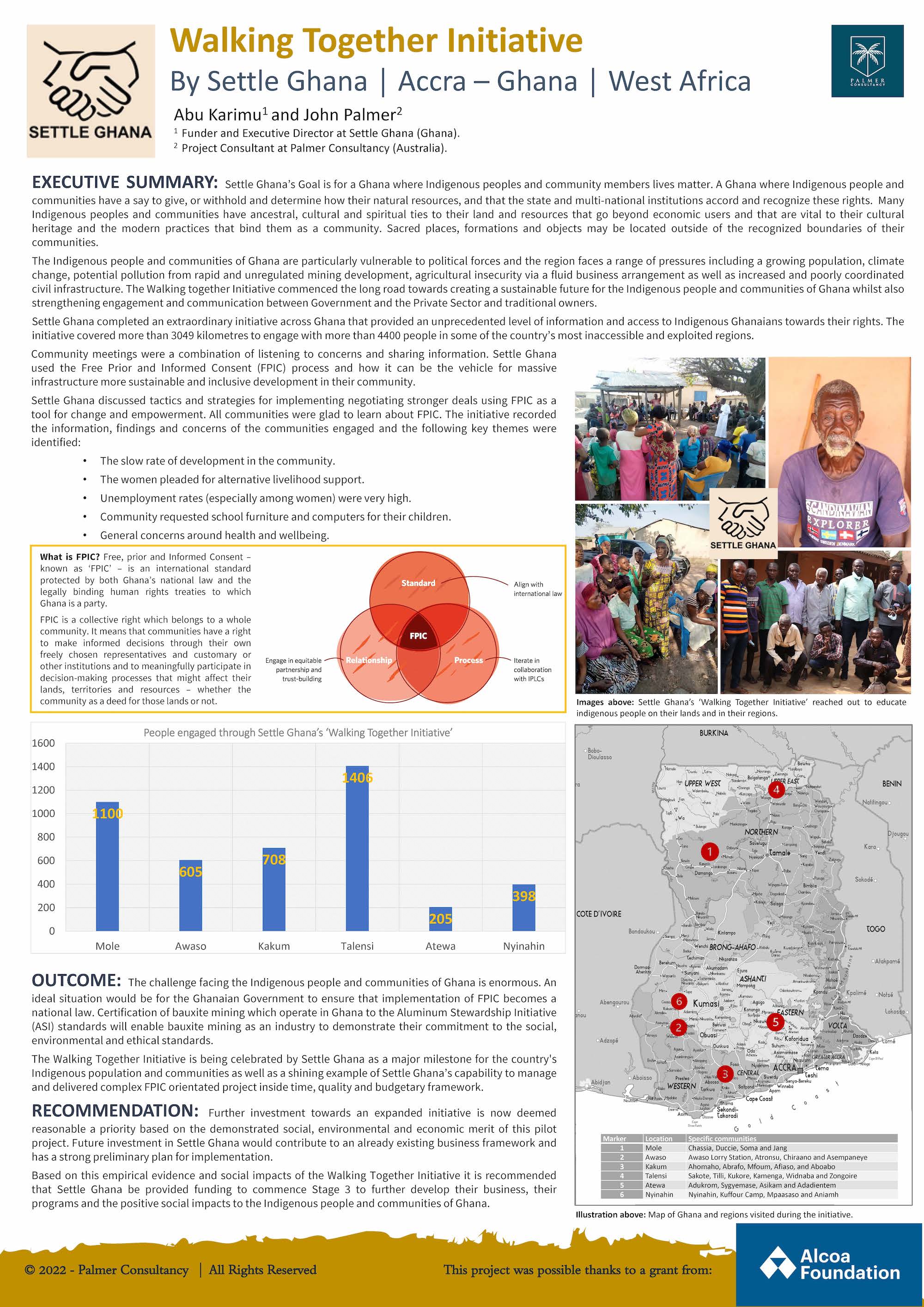 In 2022 Settle Ghana completed an extraordinary initiative across Ghana that provided an unprecedented level of information and access to Indigenous Ghanaians towards their rights. The initiative covered more than 3049 kilometres to engage with more than 4400 people in some of the country’s most inaccessible and exploited regions.
In 2022 Settle Ghana completed an extraordinary initiative across Ghana that provided an unprecedented level of information and access to Indigenous Ghanaians towards their rights. The initiative covered more than 3049 kilometres to engage with more than 4400 people in some of the country’s most inaccessible and exploited regions.
Community meetings were a combination of listening to concerns and sharing information. Settle Ghana used the Free Prior and Informed Consent (FPIC) process and how it can be the vehicle for massive infrastructure more sustainable and inclusive development in their community.
Settle Ghana discussed tactics and strategies for implementing negotiating stronger deals using FPIC as a tool for change and empowerment. All communities were glad to learn about FPIC.
The initiative recorded the information, findings and concerns of the communities engaged and the following key themes were identified:
- The slow rate of development in the community.
- The women pleaded for alternative livelihood support.
- Unemployment rates (especially among women) were very high.
- Community requested school furniture and computers for their children.
- General concerns around health and wellbeing.
Continue reading by downloading the ‘Settle Ghana – Walking together Initiative’ case study.
Download the full ‘Settle Ghana – Walking together Initiative’ Final Project Summary Report
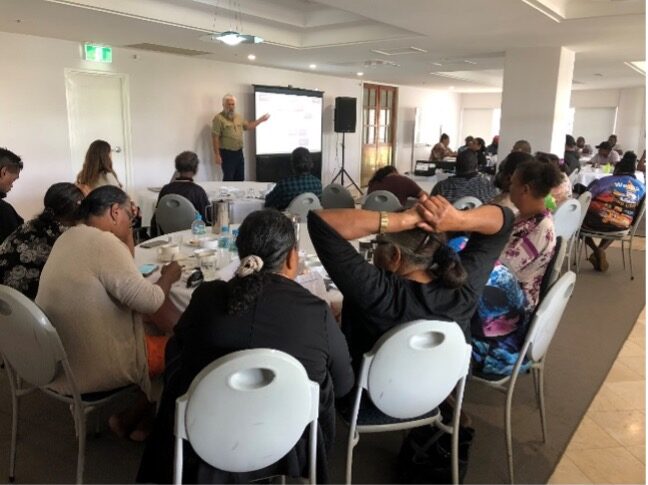 In June 2022, ASI held the second in a series of workshops about bauxite exploration and mining in Cairns in North Queensland Australia, with over 40 Indigenous community representatives from across Western and Northern Cape York Peninsula.
In June 2022, ASI held the second in a series of workshops about bauxite exploration and mining in Cairns in North Queensland Australia, with over 40 Indigenous community representatives from across Western and Northern Cape York Peninsula.
The aim of these workshops is to share information which can be used to help prepare Indigenous peoples and clan leaders to participate in discussions with other stakeholders about developments on their traditional lands (Country). Discussions at this workshop addressed the need to better understand bauxite mining and exploration, new ideas that incorporate Indigenous perspectives about mining, and ways for Indigenous people to get support and information to make informed decisions for their Country and families.
The attendees for the workshop included Indigenous people with a broad representation of age and gender. ASI and guest speakers from indigenous organisations, including Nawa Nawa Consultants and Gulkula Mining, also contributed to the discussions.
A clear message has come from the workshops and associated discussions that confirmed that Indigenous people want further information and more ASI workshops to be held on their Country, in multiple communities of Northern Australia.
IPAF projects (2015-2021)
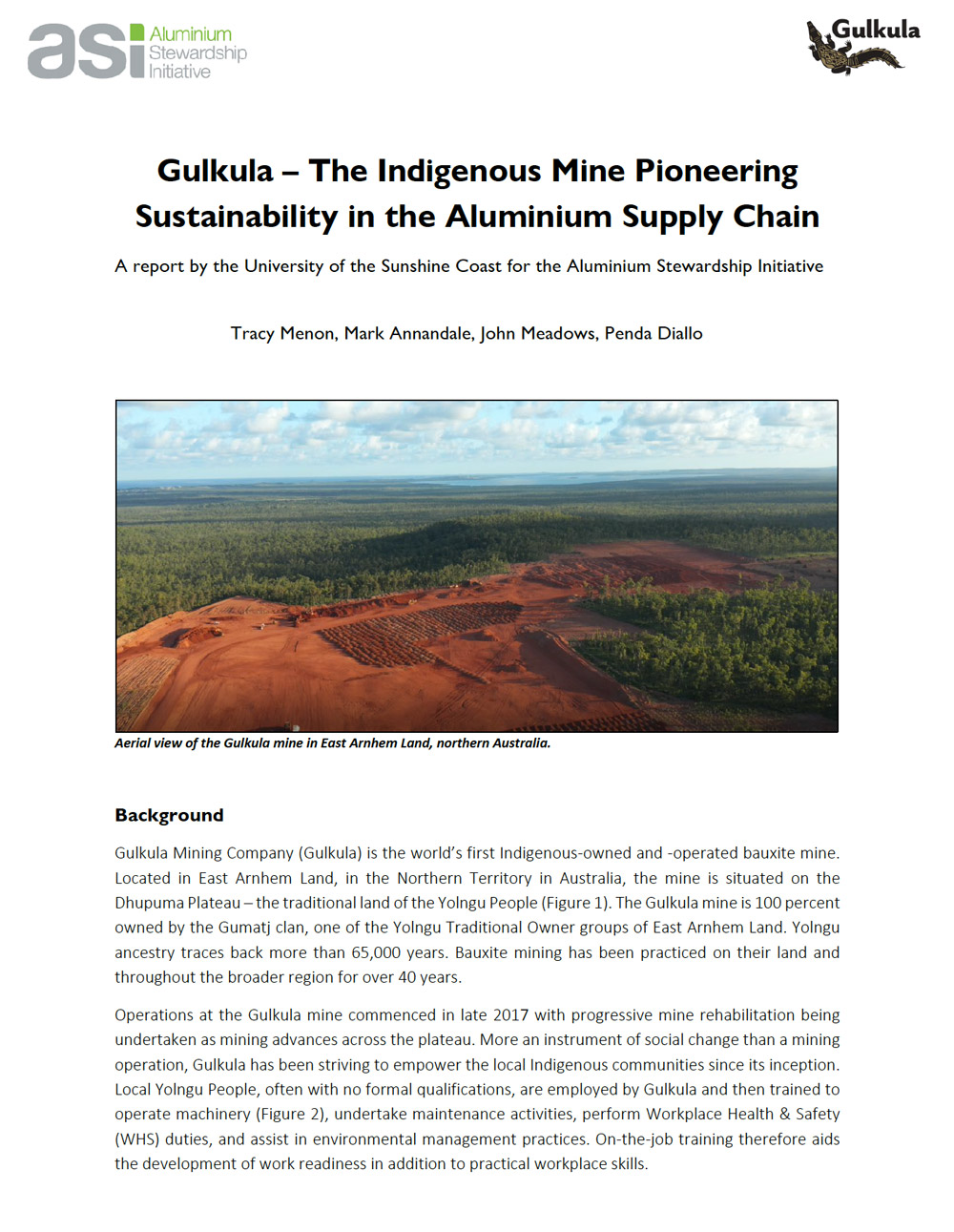 What makes ASI Member Gulkula such a unique and leading example of a mining model that demonstrates how bauxite mining operations can be more sustainable? The answers lie in the case study published in July 2021, produced by the University of the Sunshine Coast.
What makes ASI Member Gulkula such a unique and leading example of a mining model that demonstrates how bauxite mining operations can be more sustainable? The answers lie in the case study published in July 2021, produced by the University of the Sunshine Coast.
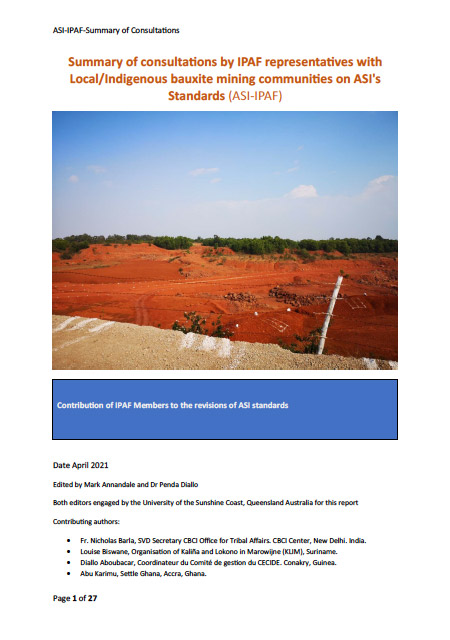 ASI-IPAF meetings have provided important opportunities for impacted communities to come together and share experiences. ASI provided IPAF representatives with financial resources and technical support to carry out community consultations to feed into ASI’s Standards Revision, including in Guinea.
ASI-IPAF meetings have provided important opportunities for impacted communities to come together and share experiences. ASI provided IPAF representatives with financial resources and technical support to carry out community consultations to feed into ASI’s Standards Revision, including in Guinea.
IPAF members discuss their efforts in a recorded webinar, highlighting their important contributions to, and engagement in, ASI standards development.
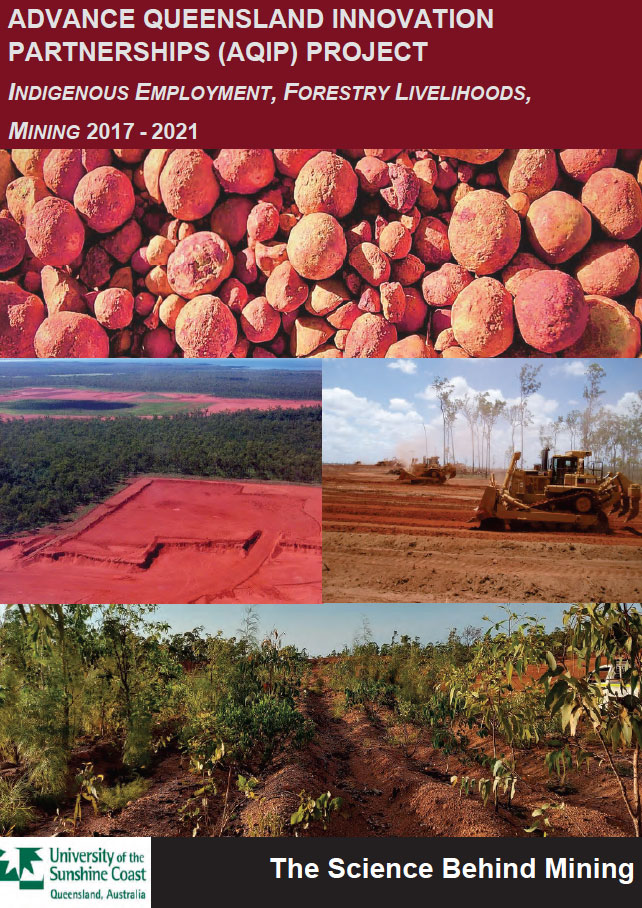 The poster series helps inform stakeholders about bauxite mining, its implications to community and the environment and some positive initiatives on how to mitigate impacts whilst enhancing Indigenous community participation and benefit, whilst supporting social license and commercial outcomes. The next step is implementation of some key findings to establish a carbon neutral or carbon positive mining operation, that supports Indigenous peoples and provides a long term legacy post mining.
The poster series helps inform stakeholders about bauxite mining, its implications to community and the environment and some positive initiatives on how to mitigate impacts whilst enhancing Indigenous community participation and benefit, whilst supporting social license and commercial outcomes. The next step is implementation of some key findings to establish a carbon neutral or carbon positive mining operation, that supports Indigenous peoples and provides a long term legacy post mining.
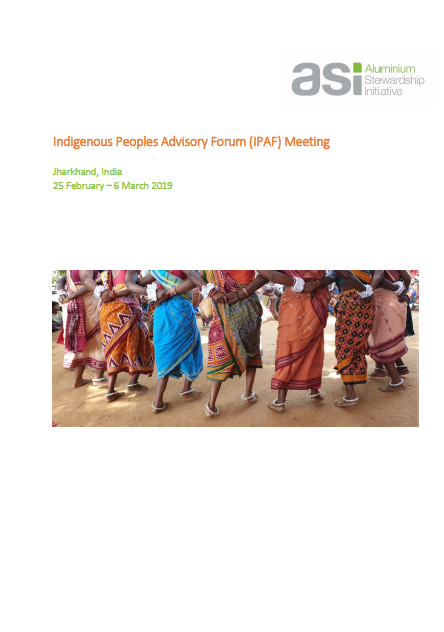 The 2019 IPAF meeting was held in Ranchi, in the state of Jharkhand, India between 25 February – 6 March. More than 30 participants from India, Australia, Canada, Ghana, Guinea, India, the Netherlands, Suriname, Switzerland, United Kingdom and the United States attended the IPAF meeting to share experiences and increase awareness of ASI’s work in the aluminium value chain.
The 2019 IPAF meeting was held in Ranchi, in the state of Jharkhand, India between 25 February – 6 March. More than 30 participants from India, Australia, Canada, Ghana, Guinea, India, the Netherlands, Suriname, Switzerland, United Kingdom and the United States attended the IPAF meeting to share experiences and increase awareness of ASI’s work in the aluminium value chain.
This year’s program featured strong participation from local Indigenous communities, Adivasi, and non-government organisations in India who welcomed the international IPAF attendees and generously shared their culture and experiences. The meeting program included three days of IPAF meetings, including a one day site visit to the bauxite mining area near Lohardaga; three days of local ASI training, attended by 32 people from three different states (Odisha, Jharkhand, Chhattisgarh);and concluded with a community visit in neighbouring state Odisha. The 2020 IPAF meeting will be held in Australia (Cairns, Weipa and Gove).
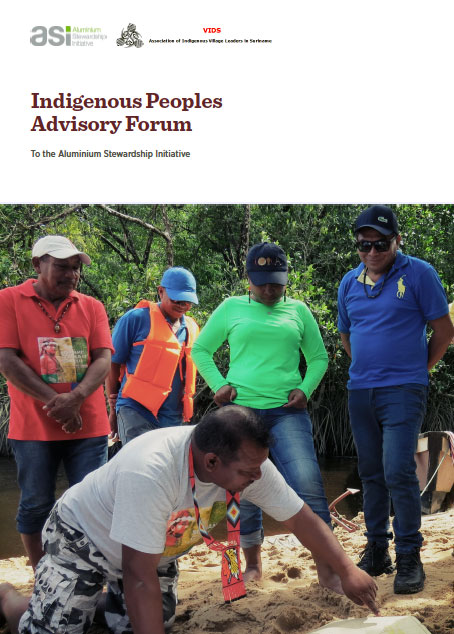 The 2018 ASI Indigenous Peoples Advisory Forum (IPAF) was held over March 21-24, in Suriname. More than 20 participants from Australia, Brazil, Cambodia, Germany, India, Philippines, Suriname and the UK joined together to share experiences and increase awareness of and engagement in ASI’s work in the aluminium value chain.
The 2018 ASI Indigenous Peoples Advisory Forum (IPAF) was held over March 21-24, in Suriname. More than 20 participants from Australia, Brazil, Cambodia, Germany, India, Philippines, Suriname and the UK joined together to share experiences and increase awareness of and engagement in ASI’s work in the aluminium value chain.
The group held discussions over 3 days on the history, function and progress of IPAF, current ASI activities, and future workplans, with ASI represented by the CEO. The meeting had strong participation from Surinamese Indigenous communities and organisations who warmly welcomed the international IPAF attendees. A German International Development Agency (GIZ)-funded report on Indigenous participation in certification schemes was tabled for discussion, and GIZ also presented on their broader extractives for development program. New participants from the Para state in Brazil presented their experiences.
Download the report in English • French • Portuguese[/vc_column_text]
The group agreed their representation in ASI Working Groups, the Standards Committee and developed plans with ASI for additional collaborations in the areas of training, auditing, translations and capacity building. An additional day was allocated for a site visit to the Wane area in district Marowijne, East Suriname, where nearly 100 years of bauxite mining activities ended in 2015.
In July 2017, the Gumatj people of East Arnhem Land welcomed the IPAF members to Nhulunbuy (Australia), also referred as Gove, for their annual meeting. With facilitation from Mark Annandale (University of the Sunshine Coast) and Gina Castelain (Wik Waya and University of the Sunshine Coast), as well as logistics support from the ASI Secretariat, this experience permitted rich discussions with the Gumatj people, contributed to the IPAF members understanding of bauxite mining and generated essential inputs to the ASI Performance Standard. In addition to its practical outcomes in terms of management of the forum and building of the ASI standards, the meeting also represented an open space for experience sharing and mutual support among representatives of Indigenous Peoples facing various but connected struggles with mining industries and their related facilities.
The meeting gathered 10 participants from Australia, India, Malaysia, Suriname, Switzerland and Thailand (See Annex I). Out of these, six were Indigenous Peoples representatives advocating for communities affected by the exploration, mining and processing of bauxite.
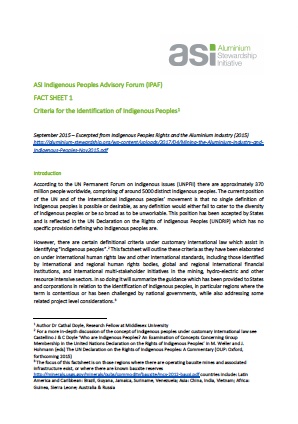 In April 2017, ASI published two Fact Sheets drawn from a publication developed through the Indigenous Peoples Advisory Forum entitled ‘Mining, the Aluminium Industry, and Indigenous Peoples’.
In April 2017, ASI published two Fact Sheets drawn from a publication developed through the Indigenous Peoples Advisory Forum entitled ‘Mining, the Aluminium Industry, and Indigenous Peoples’.
The first factsheet concerns the criteria for the identification of indigenous peoples in various regions throughout the world.
The need for guidance in relation to these two topics, in order to complement the case studies and proposed ASI indicators, was identified at the 2015 ASI Indigenous Peoples’ Experts Meeting in Chiang Mai.
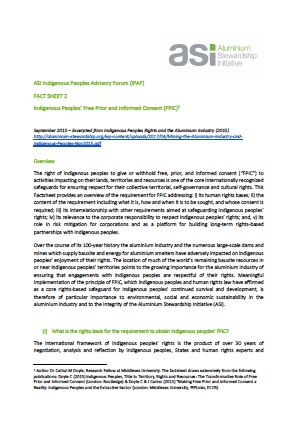 In April 2017, ASI published two Fact Sheets drawn from a publication developed through the Indigenous Peoples Advisory Forum entitled ‘Mining, the Aluminium Industry, and Indigenous Peoples’.
In April 2017, ASI published two Fact Sheets drawn from a publication developed through the Indigenous Peoples Advisory Forum entitled ‘Mining, the Aluminium Industry, and Indigenous Peoples’.
The second Fact Sheet addresses the content of indigenous peoples’ right to give or withhold their free prior and informed consent (FPIC).
The need for guidance in relation to these two topics, in order to complement the case studies and proposed ASI indicators, was identified at the 2015 ASI Indigenous Peoples’ Experts Meeting in Chiang Mai.
On 16-18 April 2016, indigenous organisations met in Kuantan, Malaysia, to discuss the convening of ASI’s Indigenous Peoples Advisory Forum (IPAF), which will be a standing forum in ASI’s governance. The objectives of the meeting included to share experiences across communities affected by exploration, bauxite mining and processing, and to review and further develop Terms of Reference for the IPAF and its role in ASI governance. Two representatives of the IPAF will serve on the ASI Standards Committee.
Around 20 participants were drawn from Australia, Cambodia, Guinea, India, Malaysia, Thailand, Suriname and the UK. The meeting was hosted by Jaringan Orang Asal SeMalaysia (JOAS) in partnership with the Asia Indigenous Peoples Pact (AIPP), the Forest Peoples Programme (FPP) and ASI. A field trip to the Kuantan port and to Kampung Mengkapur, a local Orang Asli indigenous community affected by mining and rubber plantation developments, took place on the third day and concluded with a cultural night in the village where participants shared traditional dances and music.
Meeting participants engaged in two days of detailed and productive discussions on ASI’s governance, assurance model and complaints mechanism and the future role of the IPAF. The meeting resulted in draft Terms of Reference for the establishment and functioning of the IPAF that will now be circulated for further input from indigenous organisations. In addition, a range of valuable input was brought forward by participants that will be integrated into the development of the ASI assurance model and complaints procedures.
ASI extends sincere thanks to the meeting hosts and organisers, to the Mengkapur Village for their kind hospitality, to the hard-working translators, and to all participants for their time, expertise and thoughtful input. The next IPAF meeting is anticipated in early 2017.
Download a copy of the April 2016 meeting report (pdf format).
In May 2015, indigenous peoples’ organisations gathered over four days in Chian Mai, Thailand, to review the ASI Performance Standard (version 1) and discuss appropriate indicators to measure implementation of the standard in practice.
Input from participating organisations was drawn from India, Cambodia, Australia and Suriname, with additional advice drawn from indigenous peoples’ rights experts from the Philippines, Nepal, and Bangladesh. The meeting was facilitated by the Asia Indigenous Peoples Pact Foundation (AIPP) and the Forest Peoples Programme (FPP), in partnership with IUCN as the coordinating body for the preparatory stage of ASI.
The meeting resulted in a detailed set of recommendations related to appropriate indicators and associated guidance required for effective implementation and assurance of compliance, plus broader recommendations for continued engagement of indigenous peoples’ organisations and support groups in ASI governance, and for the planned ASI Complaints Mechanism (now complete).
ASI will work to integrate these recommendations into the development of its programs and develop formal structures for continued engagement with indigenous peoples’ organisations and rights experts on these issues.
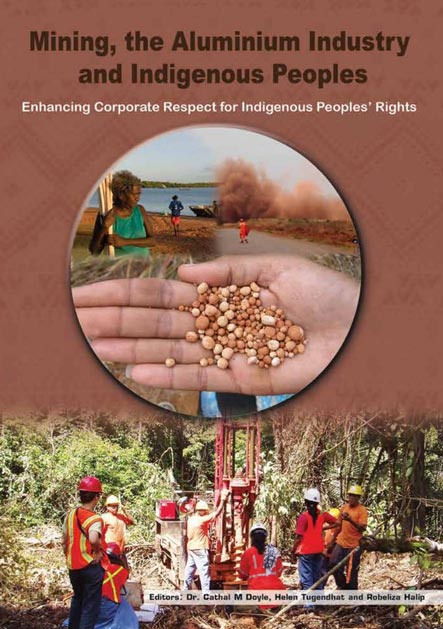 ‘Mining, the Aluminium Industry, and Indigenous Peoples’ is a publication developed through the ASI Indigenous Peoples Advisory Forum.
‘Mining, the Aluminium Industry, and Indigenous Peoples’ is a publication developed through the ASI Indigenous Peoples Advisory Forum.
Excerpt: “Historically, the aluminium industry, with its bauxite mines and large-scale dams supplying power for smelting and refining, has had significant direct adverse impacts on the rights of indigenous peoples, as demonstrated in the experiences outlined in this publication. Understanding the history and on-going impact of this legacy is a necessary and indeed critical step in creating a more responsible and responsive industry in the future.”
Continue reading by downloading the ‘Mining, the Aluminium Industry, and Indigenous Peoples’ publication.
IPAF Documents and Stories
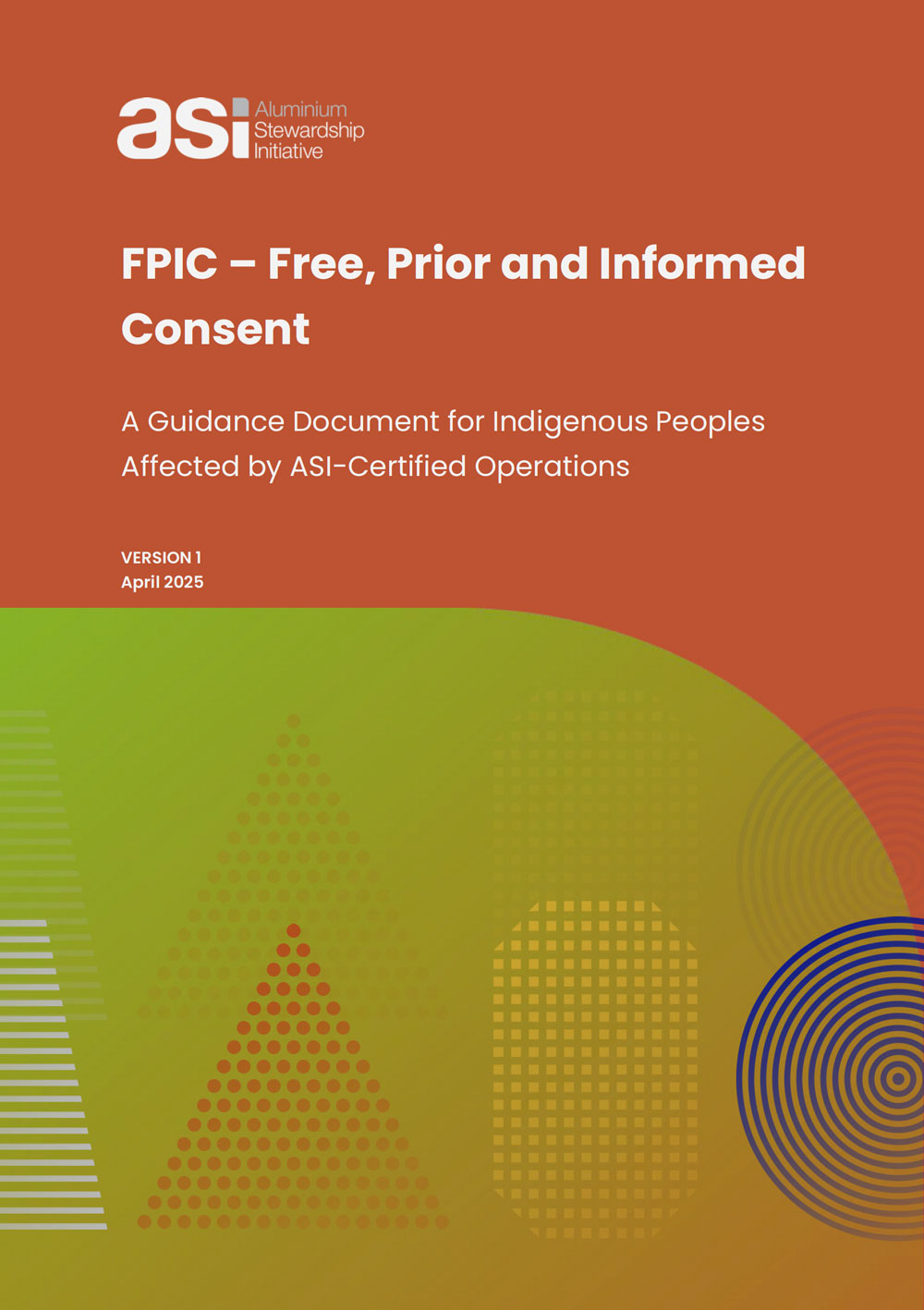
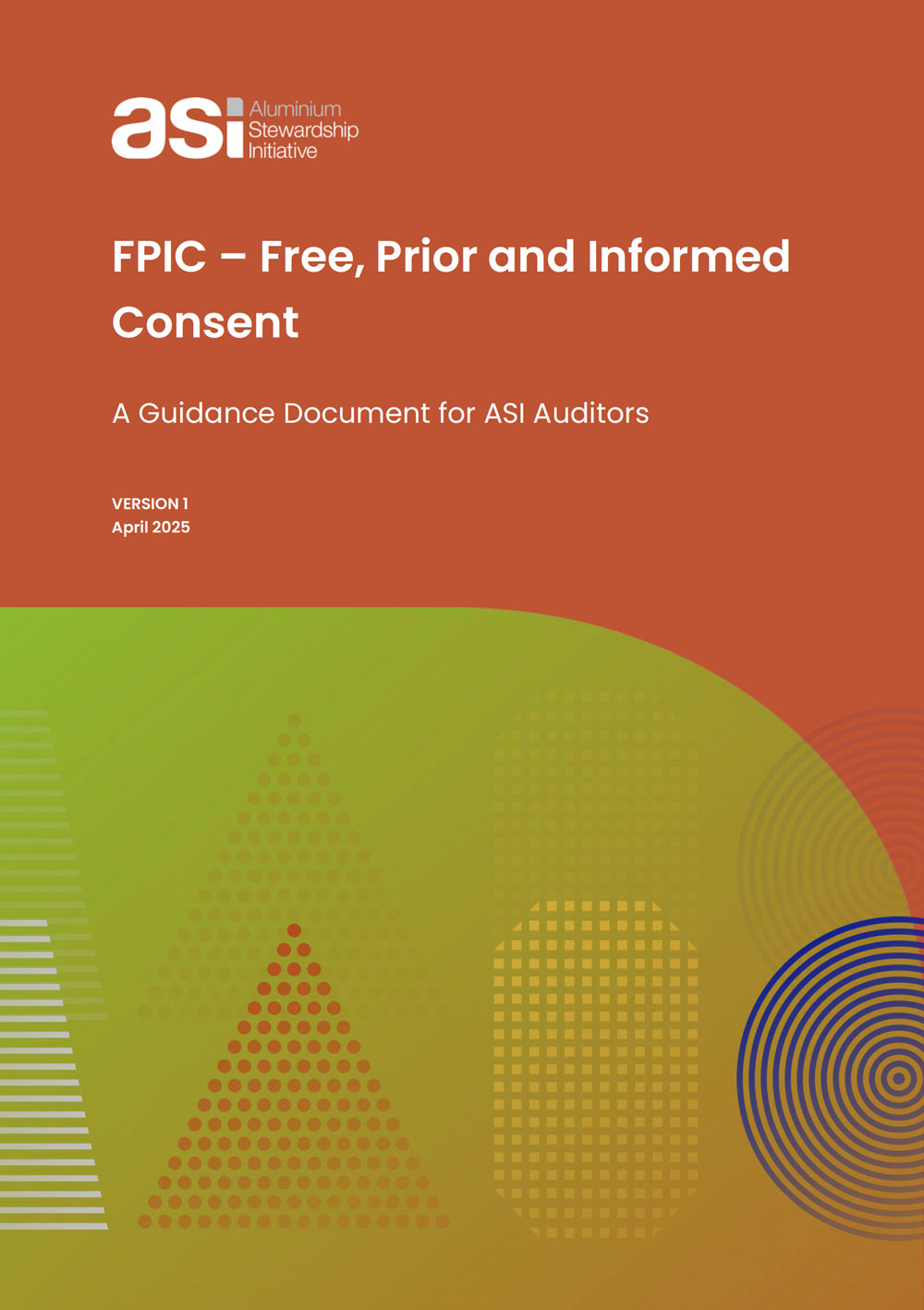
DOWNLOAD
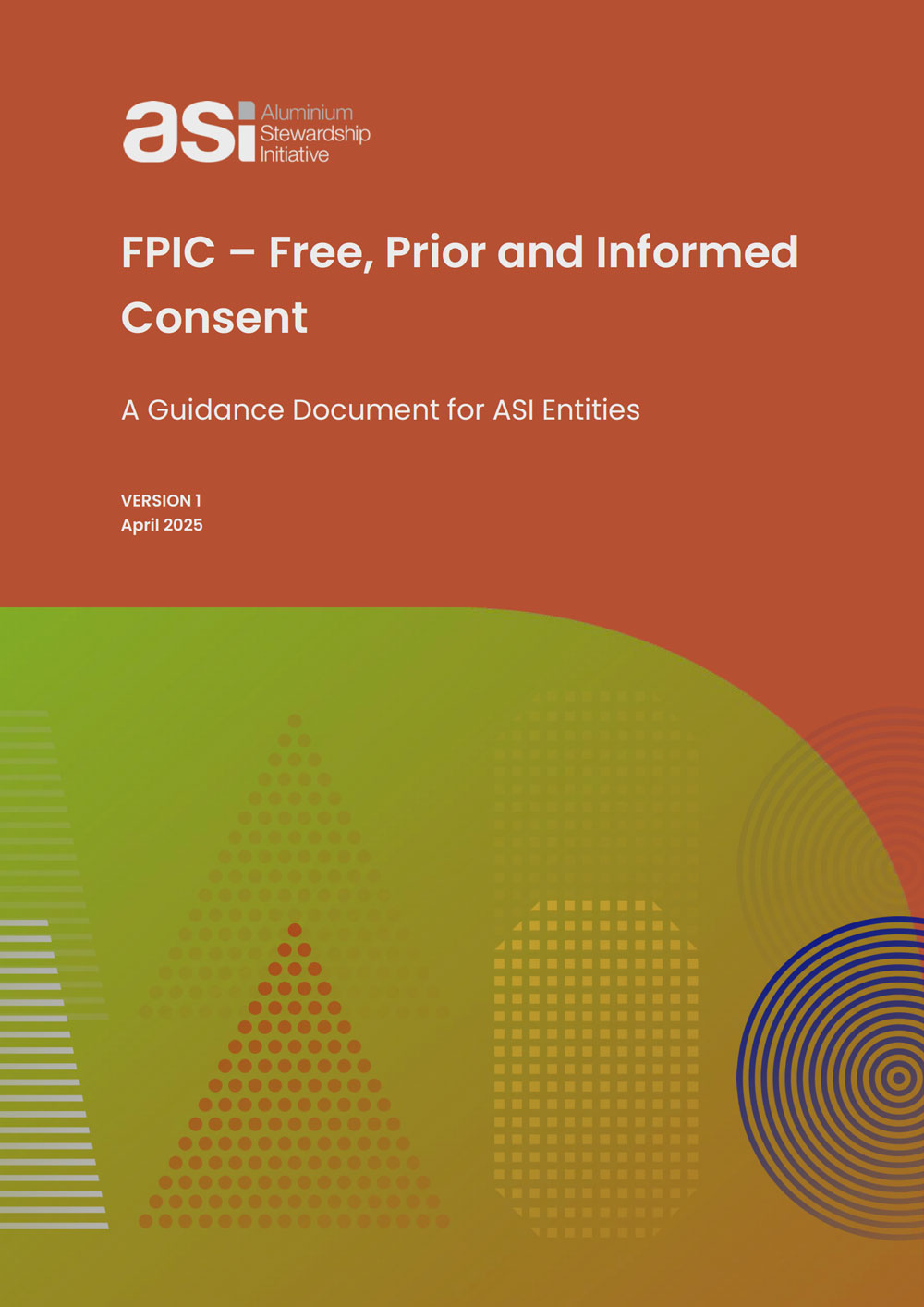
DOWNLOAD
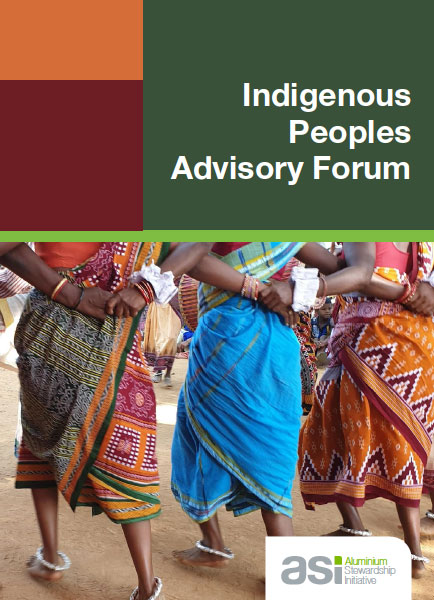
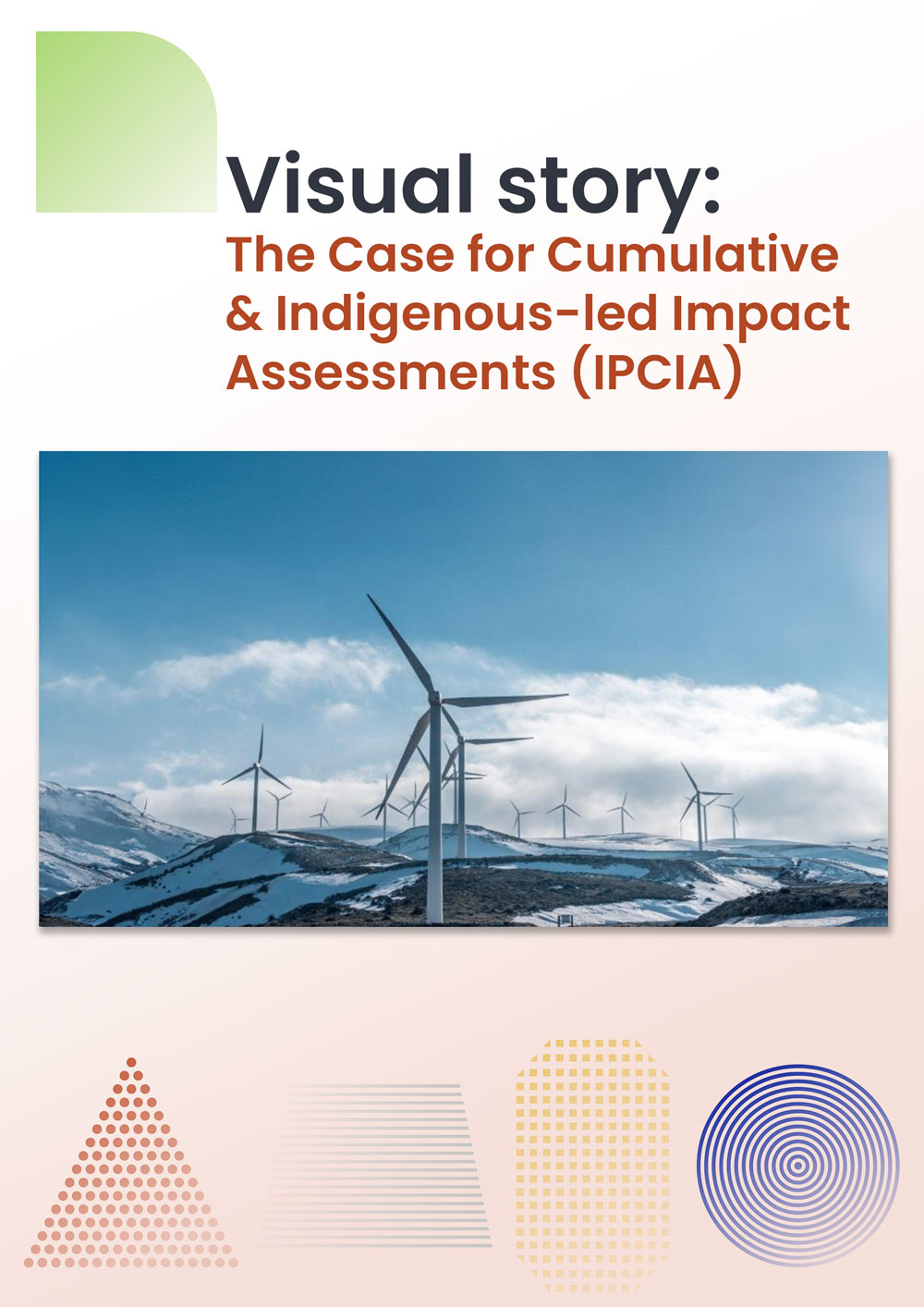
DOWNLOAD
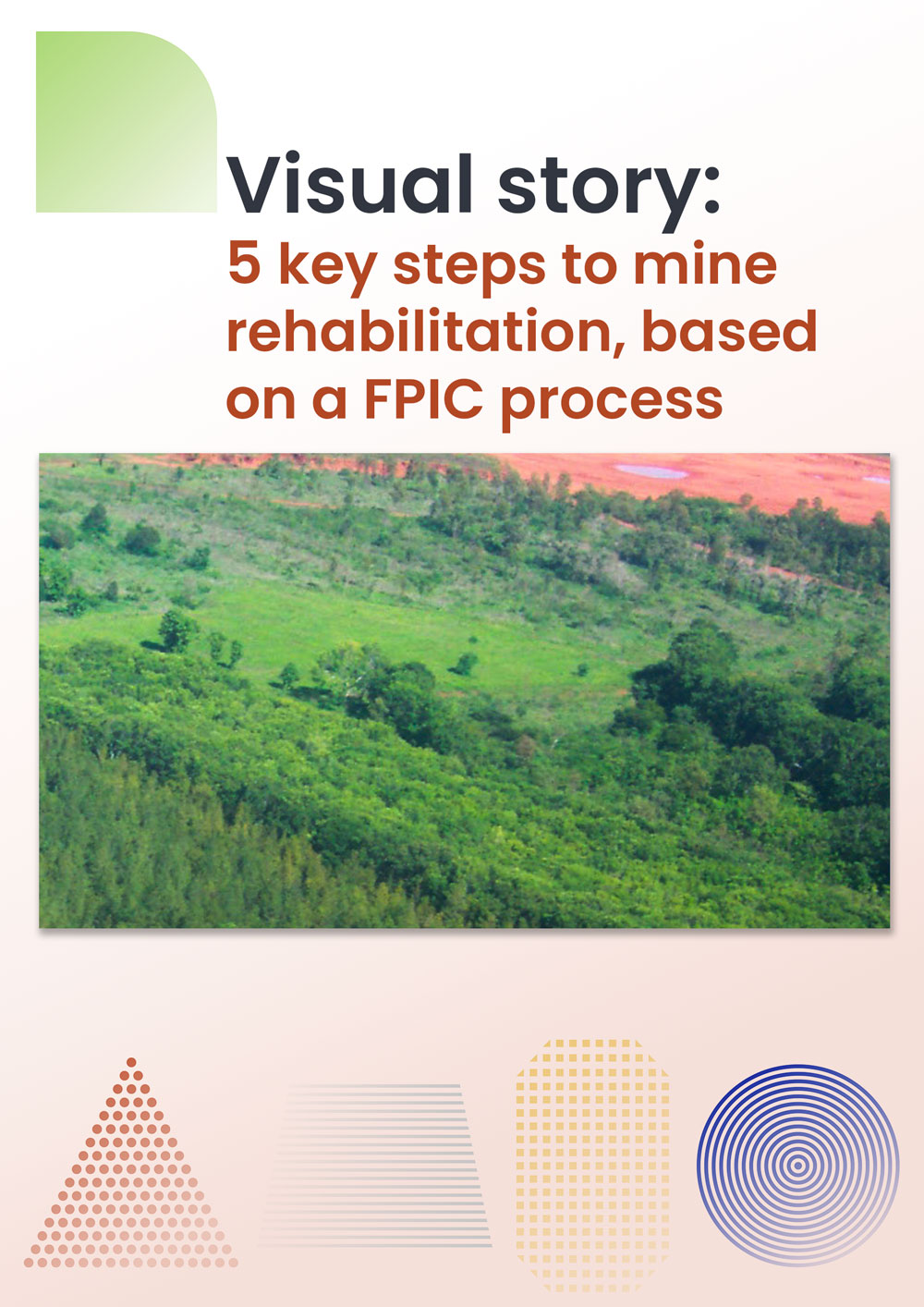
DOWNLOAD
IPAF and related videos
IPAF Newsfeed
Building trust through dialogue: Stakeholder engagement in ASI’s assurance processes
Members of the Indigenous Peoples Advisory Forum (IPAF) participate directly in audits, bringing lived experience and cultural knowledge that both enrich the process and build trust.
10 Years of ASI: Strengthening Indigenous and community engagement
Through workshops and projects in Australia, Guinea and beyond, ASI supports capacity building, knowledge sharing, and informed participation across the aluminium value chain. Watch the video to see how train-the-trainer models and mine rehabilitation initiatives are empowering communities to lead local solutions.
10 Years of ASI: The Role of IPAF in Shaping Responsible Aluminium
Discover how IPAF supports peer engagement, contributes to ASI’s Standards Committee, and helps shape dialogue-based approaches to remedy. This video highlights how this forum plays a powerful role in shifting the balance of power and knowledge in support of local communities.
RELATED TOPICS:
indigenous peoples advisory forumindigenous peoplesaffected communities
SHARE THIS PAGE:

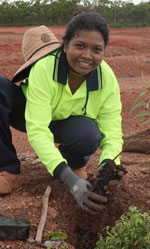 “I have gained valuable industry experience by participating in a comprehensive training program at Gulkula Mines in Australia from January 26 to February 12, 2025. The program focused on critical aspects of mine rehabilitation and closure, including mine closure planning, rehabilitation planting, and the monitoring and assessment of land, water, and trees. Additionally, I explored the necessary planning requirements and regulatory considerations, emphasizing the importance of Free, Prior, and Informed Consent (FPIC) from both Tribal Peoples and affected communities. This training equipped me to promote collaborative livelihood opportunities while ensuring positive environmental and human rights outcomes.” – Shreya Jessica Dhan, India
“I have gained valuable industry experience by participating in a comprehensive training program at Gulkula Mines in Australia from January 26 to February 12, 2025. The program focused on critical aspects of mine rehabilitation and closure, including mine closure planning, rehabilitation planting, and the monitoring and assessment of land, water, and trees. Additionally, I explored the necessary planning requirements and regulatory considerations, emphasizing the importance of Free, Prior, and Informed Consent (FPIC) from both Tribal Peoples and affected communities. This training equipped me to promote collaborative livelihood opportunities while ensuring positive environmental and human rights outcomes.” – Shreya Jessica Dhan, India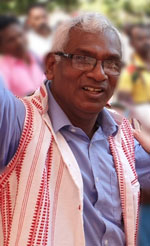 I remember in Norway at the ASI Annual General Meeting, there were about 120 people from ASI Members from all over the world, and at this event, IPAF had the possibility to describe the situations we are experiencing in our communities to these companies. ASI provides the possibility for dialogue between the companies and the affected people, and we’re grateful to ASI for facilitating this level of dialogue.”– Father Nicholas Barla, India
I remember in Norway at the ASI Annual General Meeting, there were about 120 people from ASI Members from all over the world, and at this event, IPAF had the possibility to describe the situations we are experiencing in our communities to these companies. ASI provides the possibility for dialogue between the companies and the affected people, and we’re grateful to ASI for facilitating this level of dialogue.”– Father Nicholas Barla, India “The affected communities in Guinea welcomed the revision team in the hope that IPAF and ASI would help them reduce the negative impacts and suffering they face from the mining operations; that ASI can influence the mining operations to follow the ASI.” – Aboubacar Diallo, Guinea
“The affected communities in Guinea welcomed the revision team in the hope that IPAF and ASI would help them reduce the negative impacts and suffering they face from the mining operations; that ASI can influence the mining operations to follow the ASI.” – Aboubacar Diallo, Guinea “Félicitations à toute l’équipe d’ASI. Nous les communautés riveraines des zones d’exploitation, sommes fiers de vous et espérons que les réformes préconisées par notre institution vont entraîner plus de rigueur et dynamisme dans le respect des droits des communautés riveraines des sites de production et transformation de bauxite, d’alumine et d’aluminium. // Congratulations to the entire ASI team. We, the communities living in the mining areas, are proud of you and hope that the reforms recommended by our organisation will lead to more rigourous and dynamic respect for the rights of the communities living in the bauxite, alumina and aluminium production and transformation sites.” – Mamadou Houdy BAH, Guinée / Guinea
“Félicitations à toute l’équipe d’ASI. Nous les communautés riveraines des zones d’exploitation, sommes fiers de vous et espérons que les réformes préconisées par notre institution vont entraîner plus de rigueur et dynamisme dans le respect des droits des communautés riveraines des sites de production et transformation de bauxite, d’alumine et d’aluminium. // Congratulations to the entire ASI team. We, the communities living in the mining areas, are proud of you and hope that the reforms recommended by our organisation will lead to more rigourous and dynamic respect for the rights of the communities living in the bauxite, alumina and aluminium production and transformation sites.” – Mamadou Houdy BAH, Guinée / Guinea